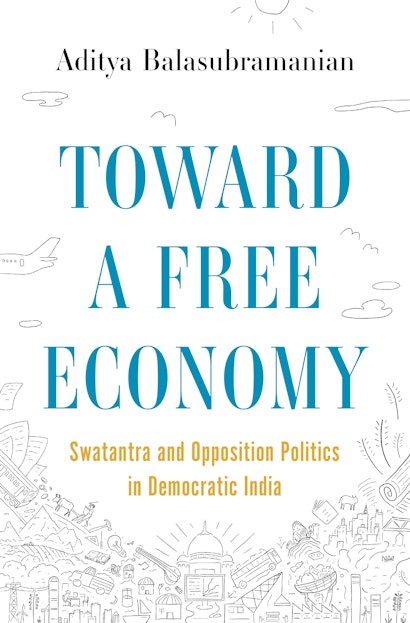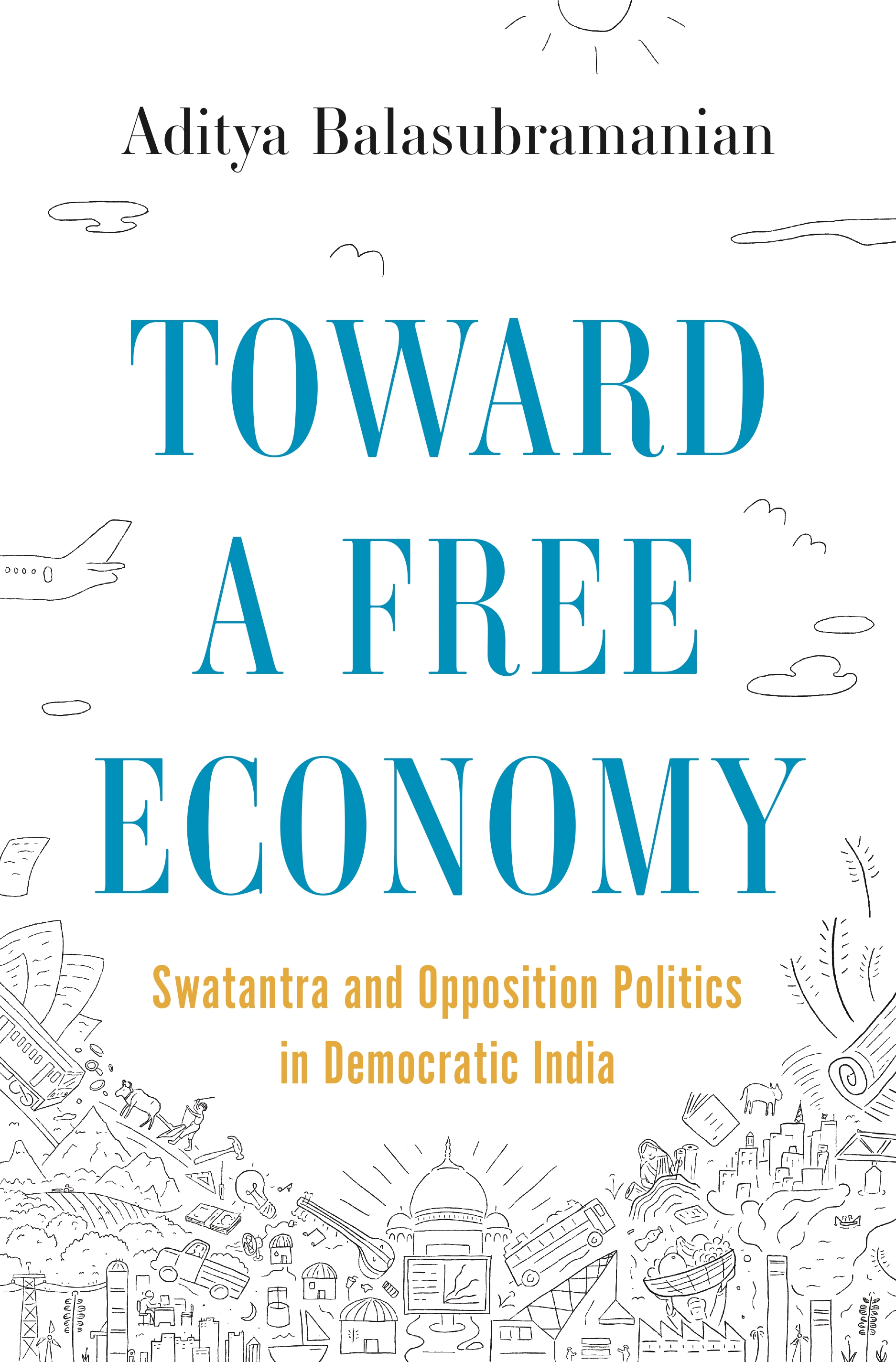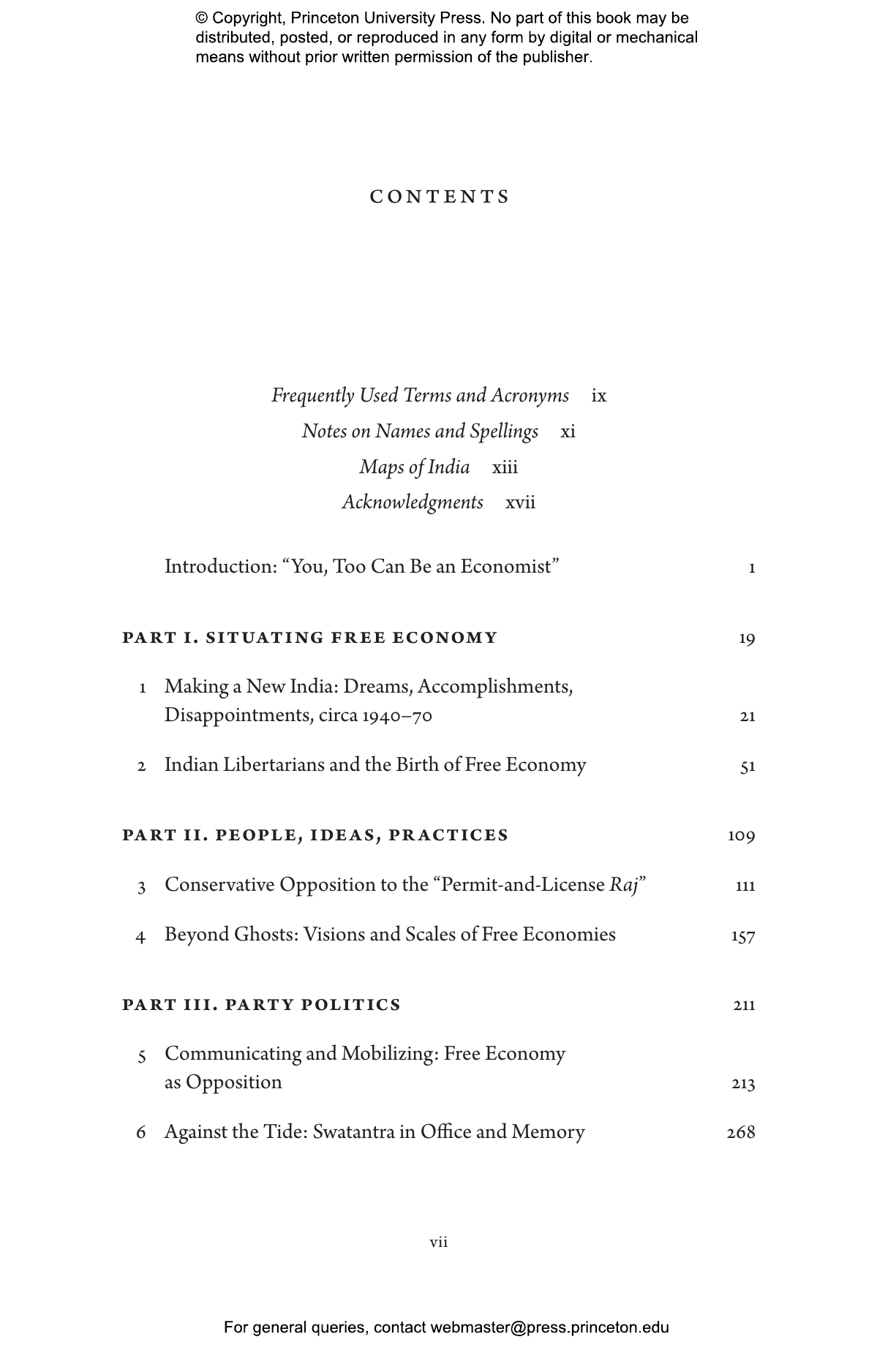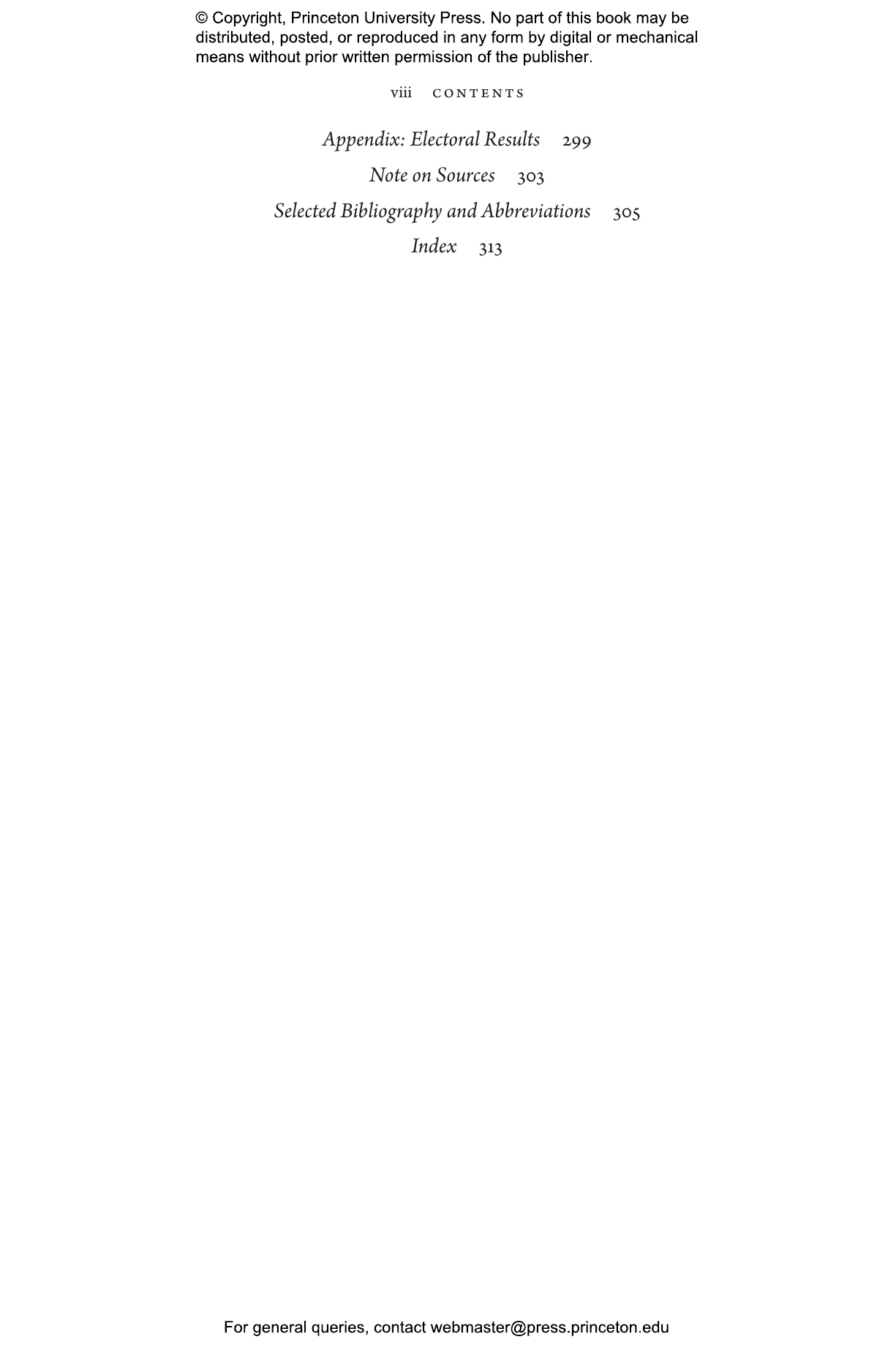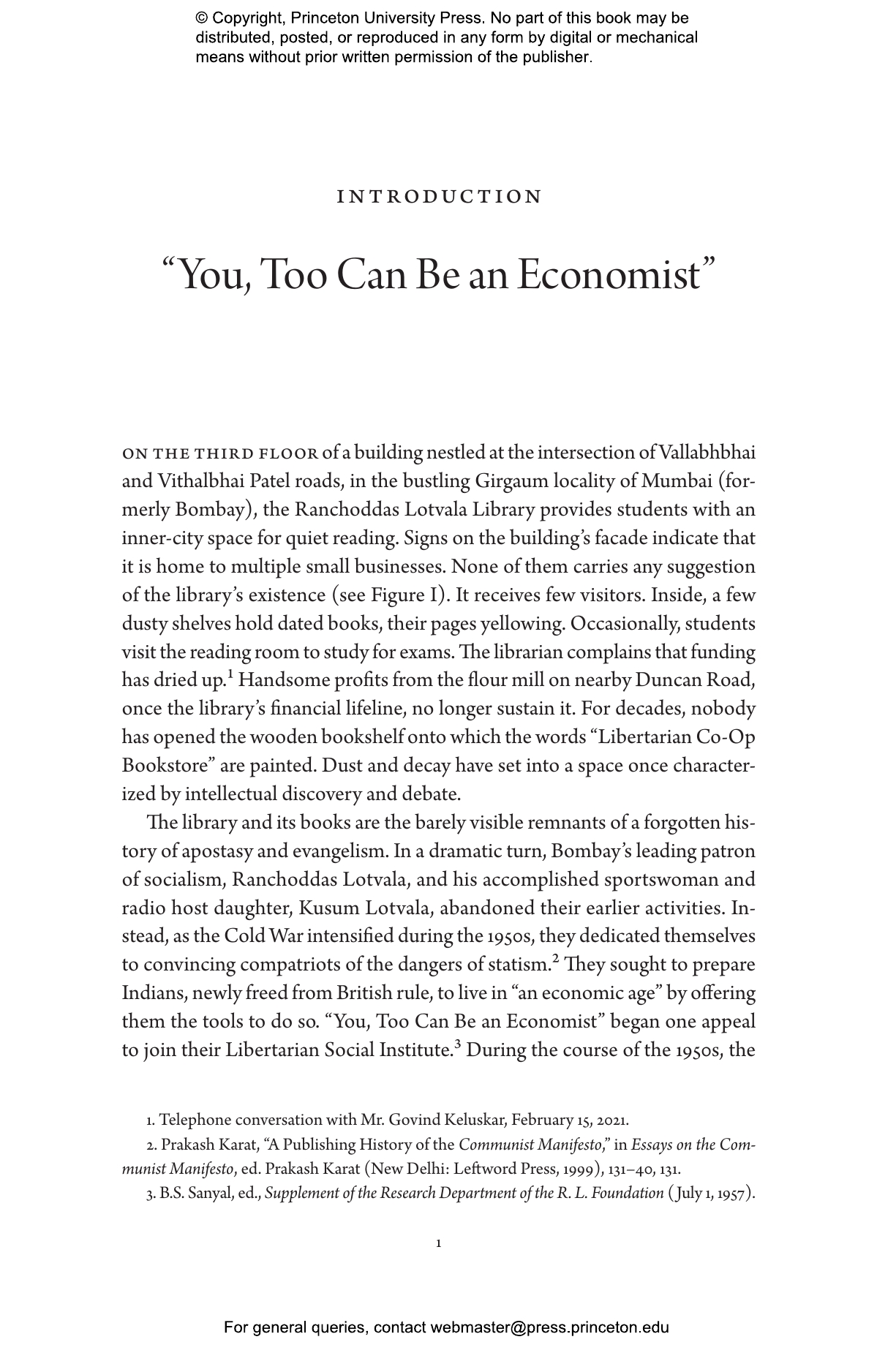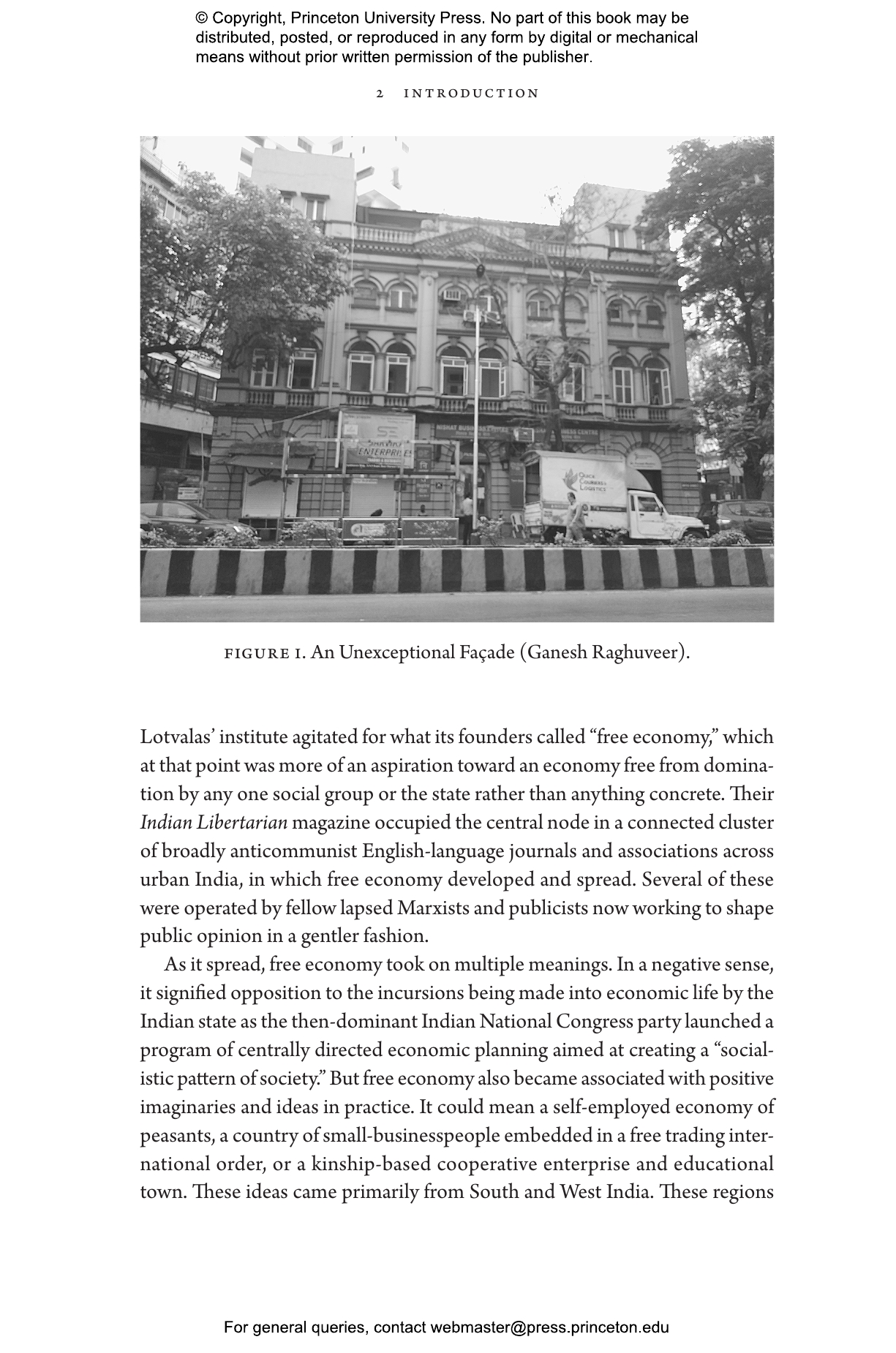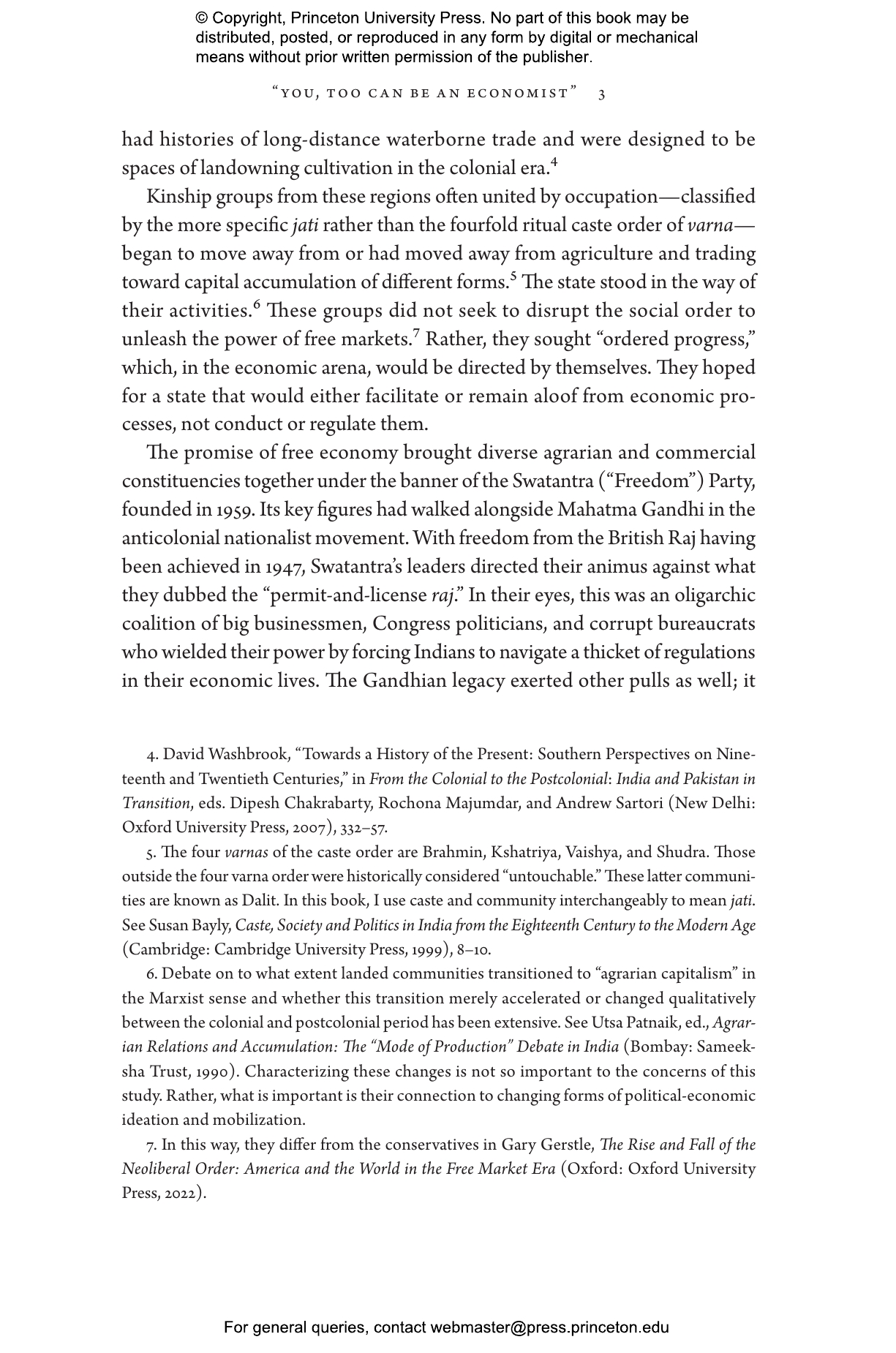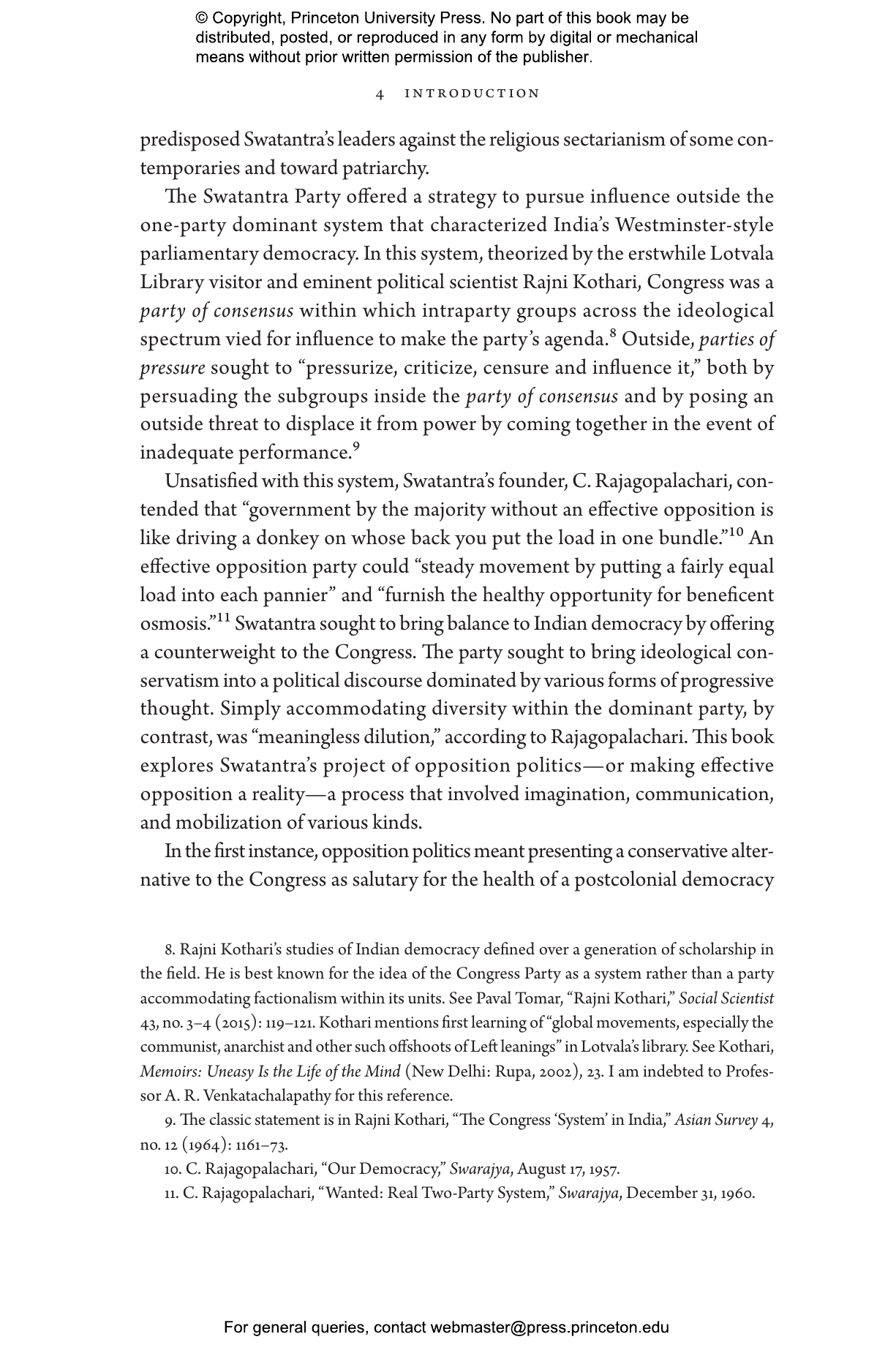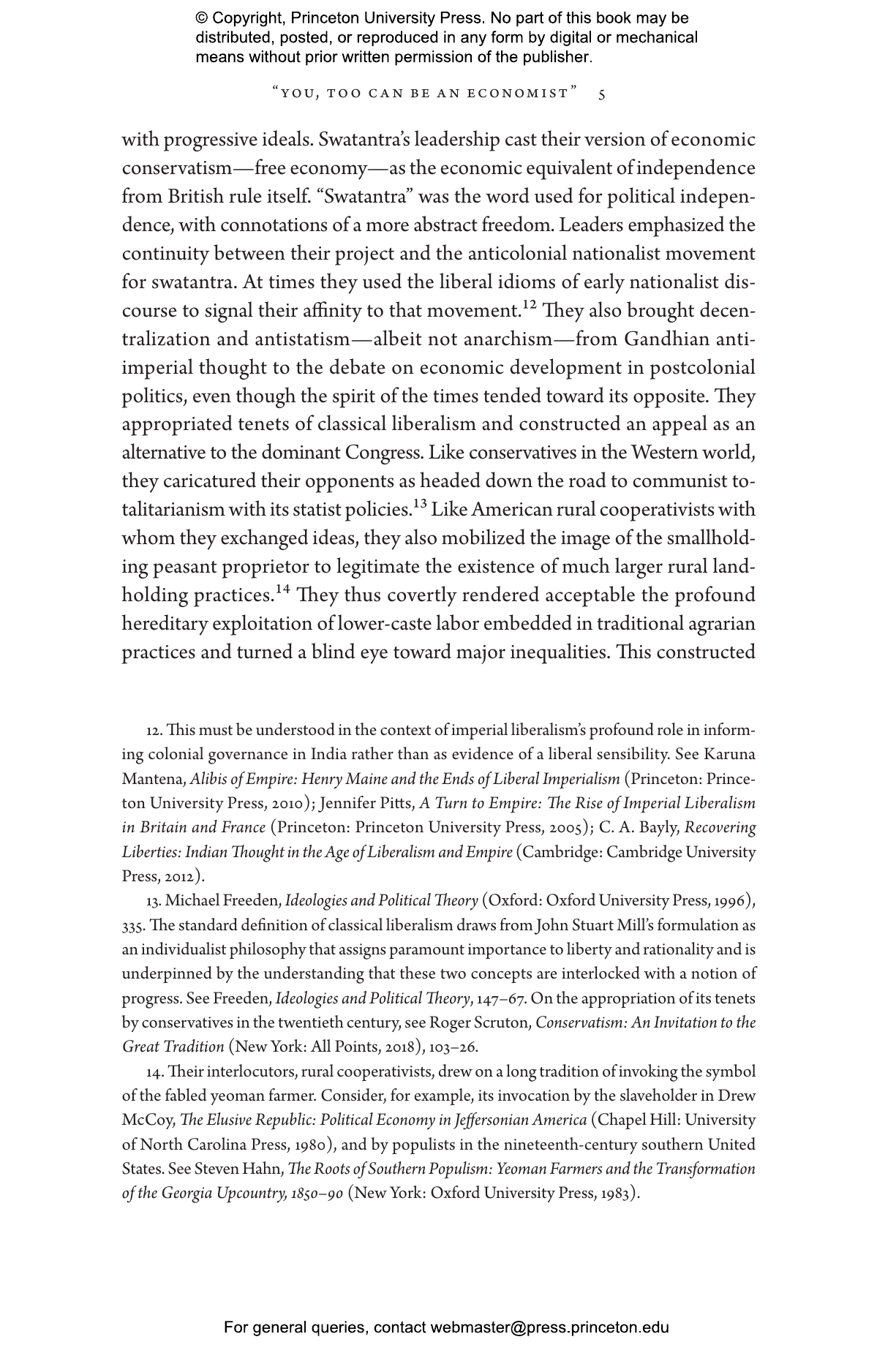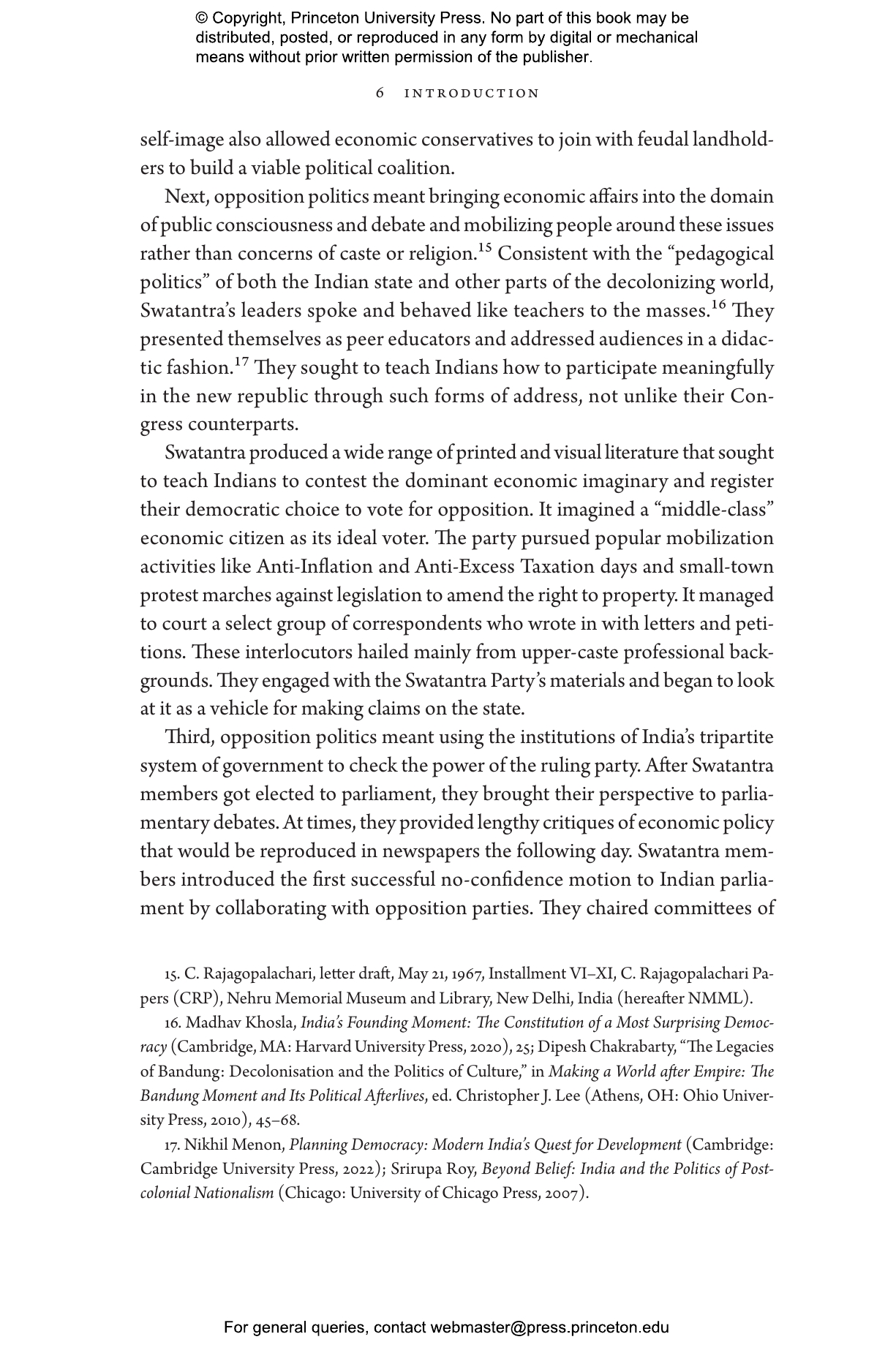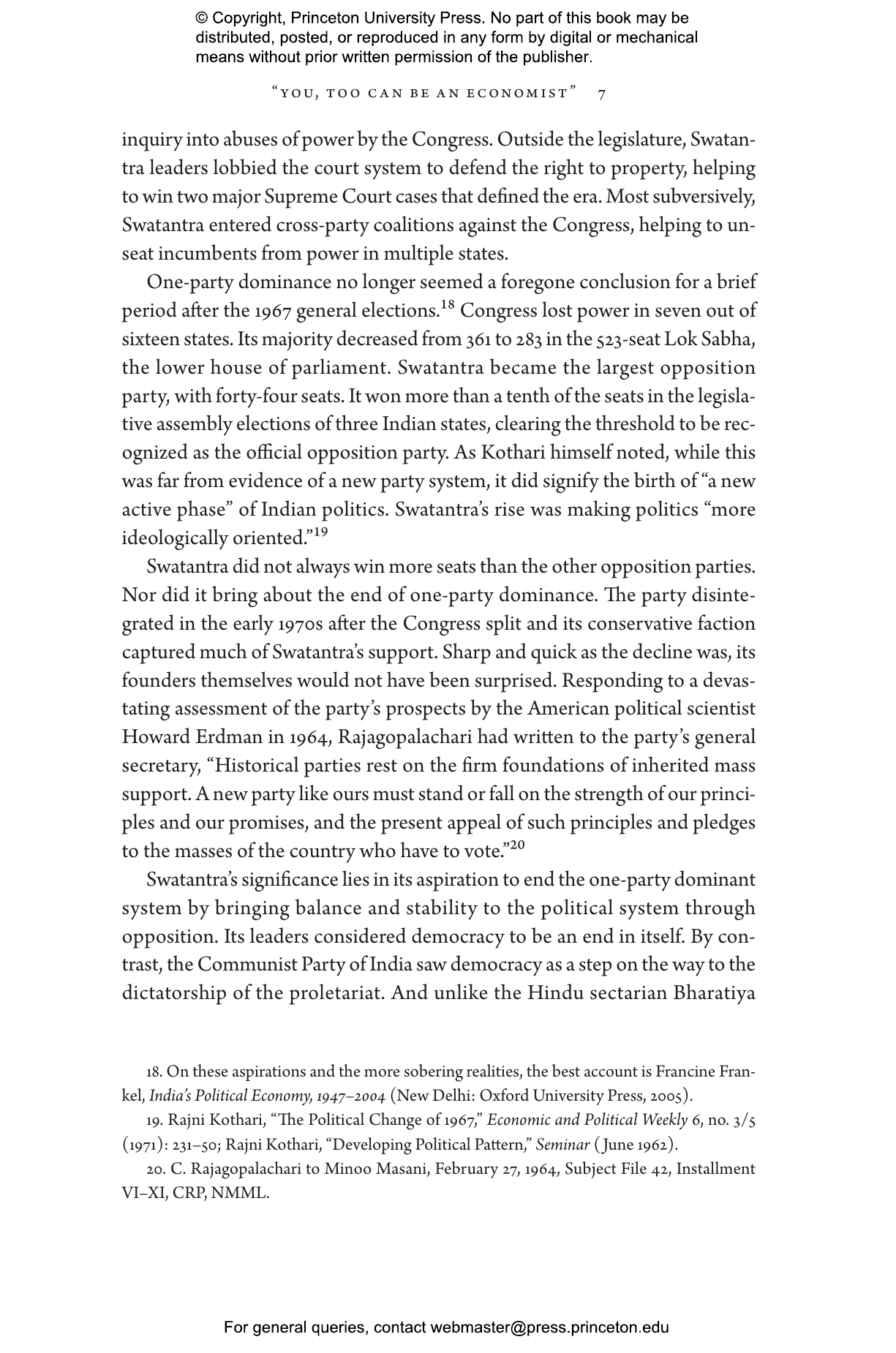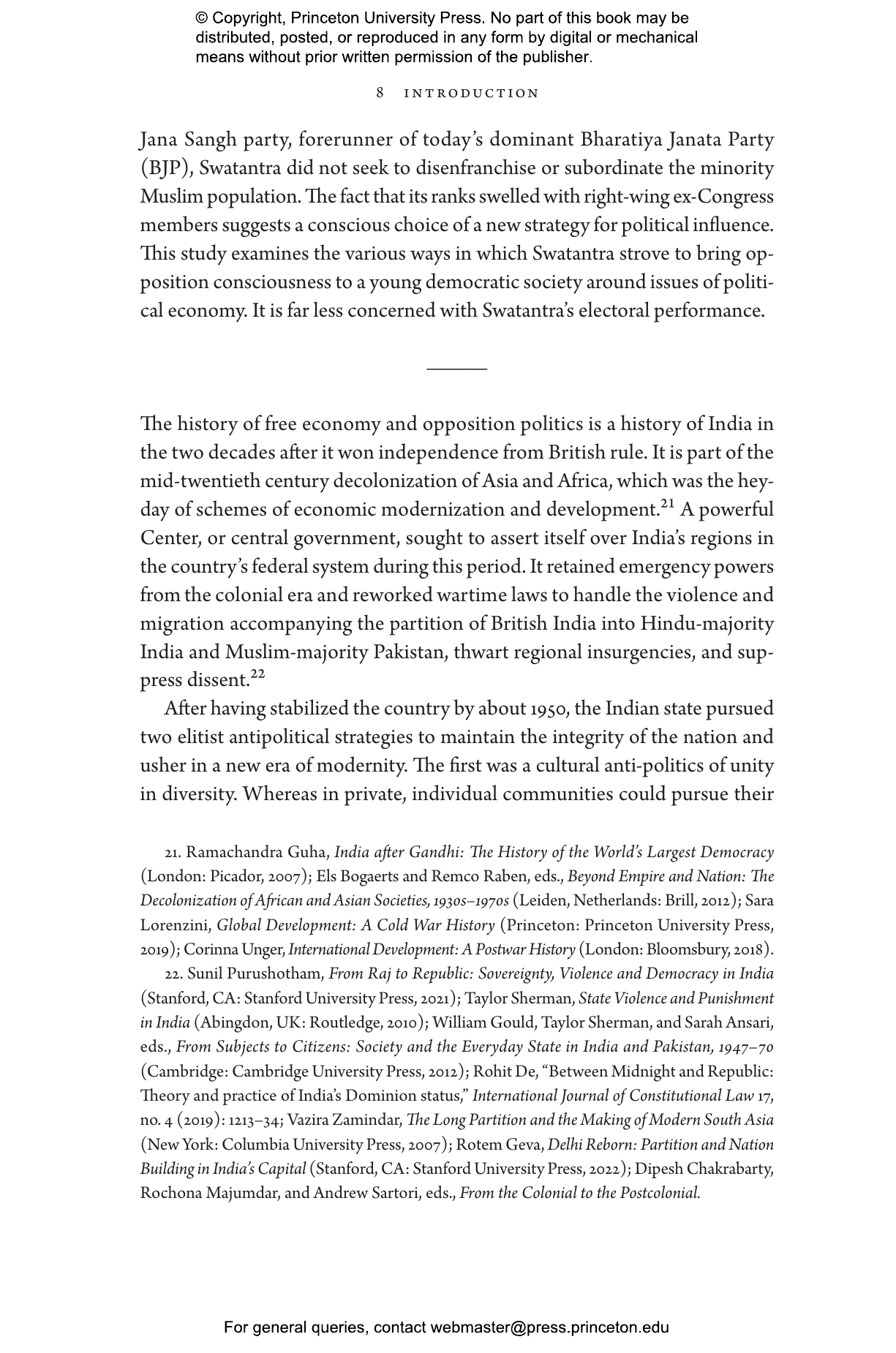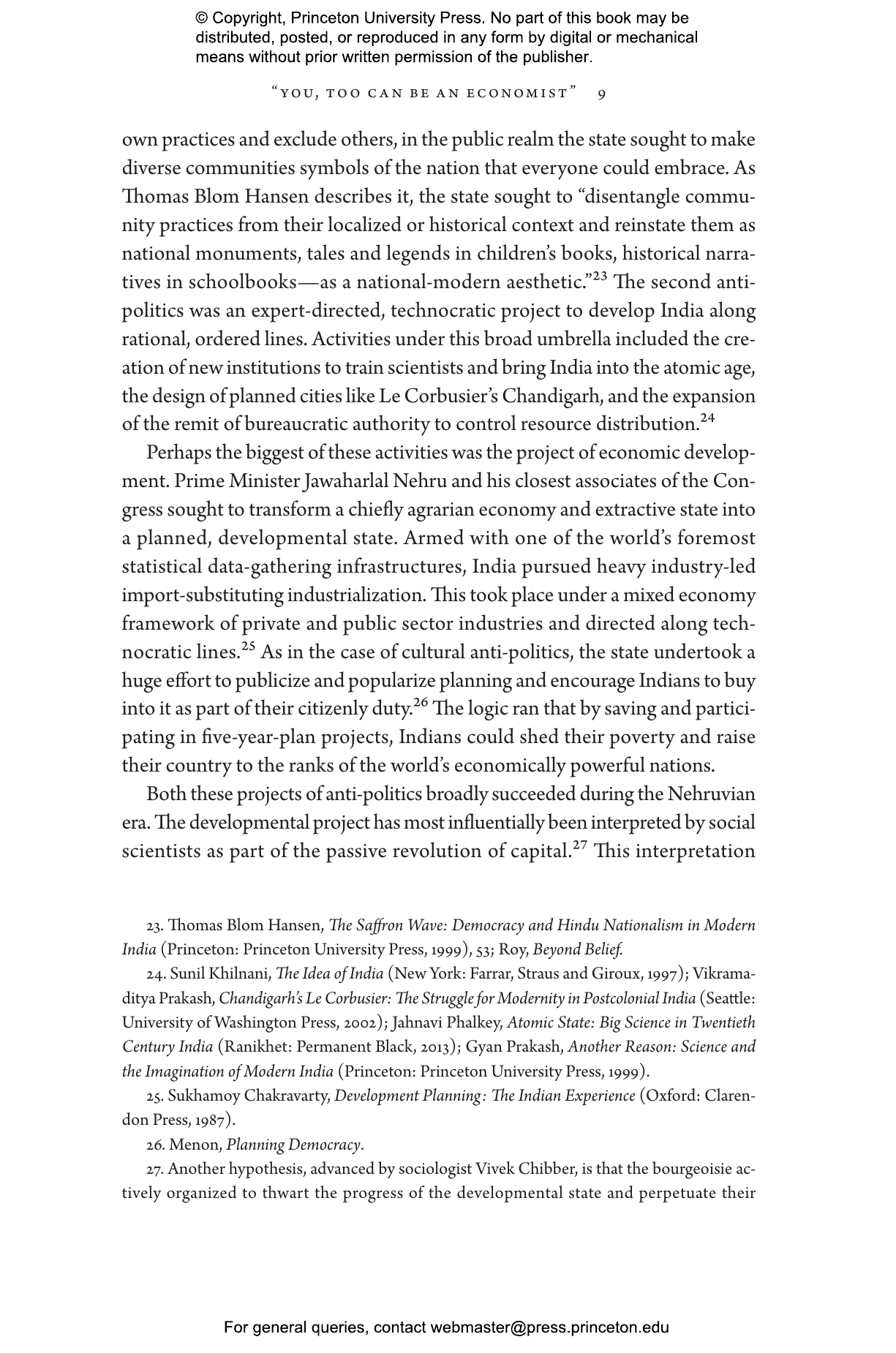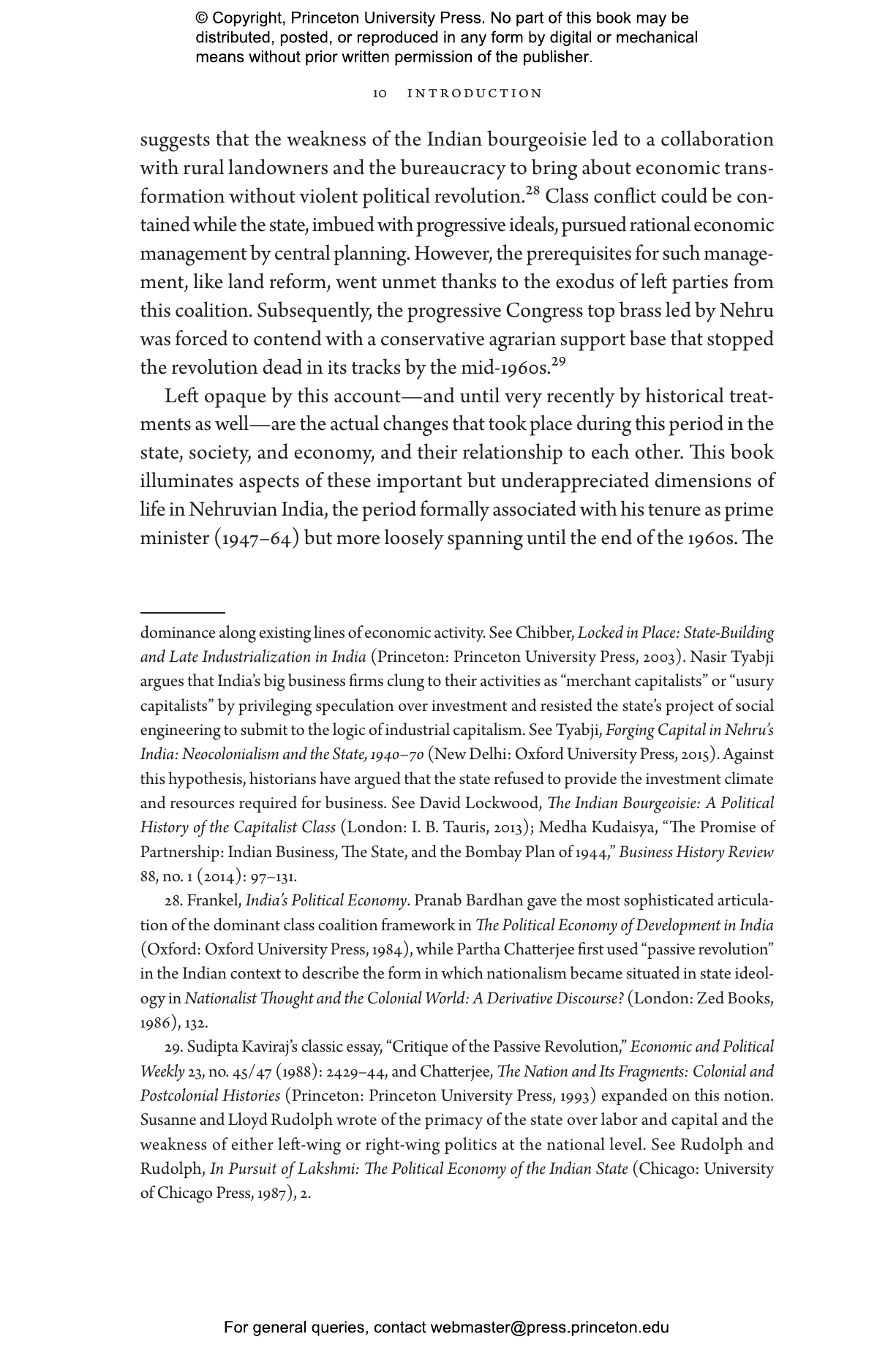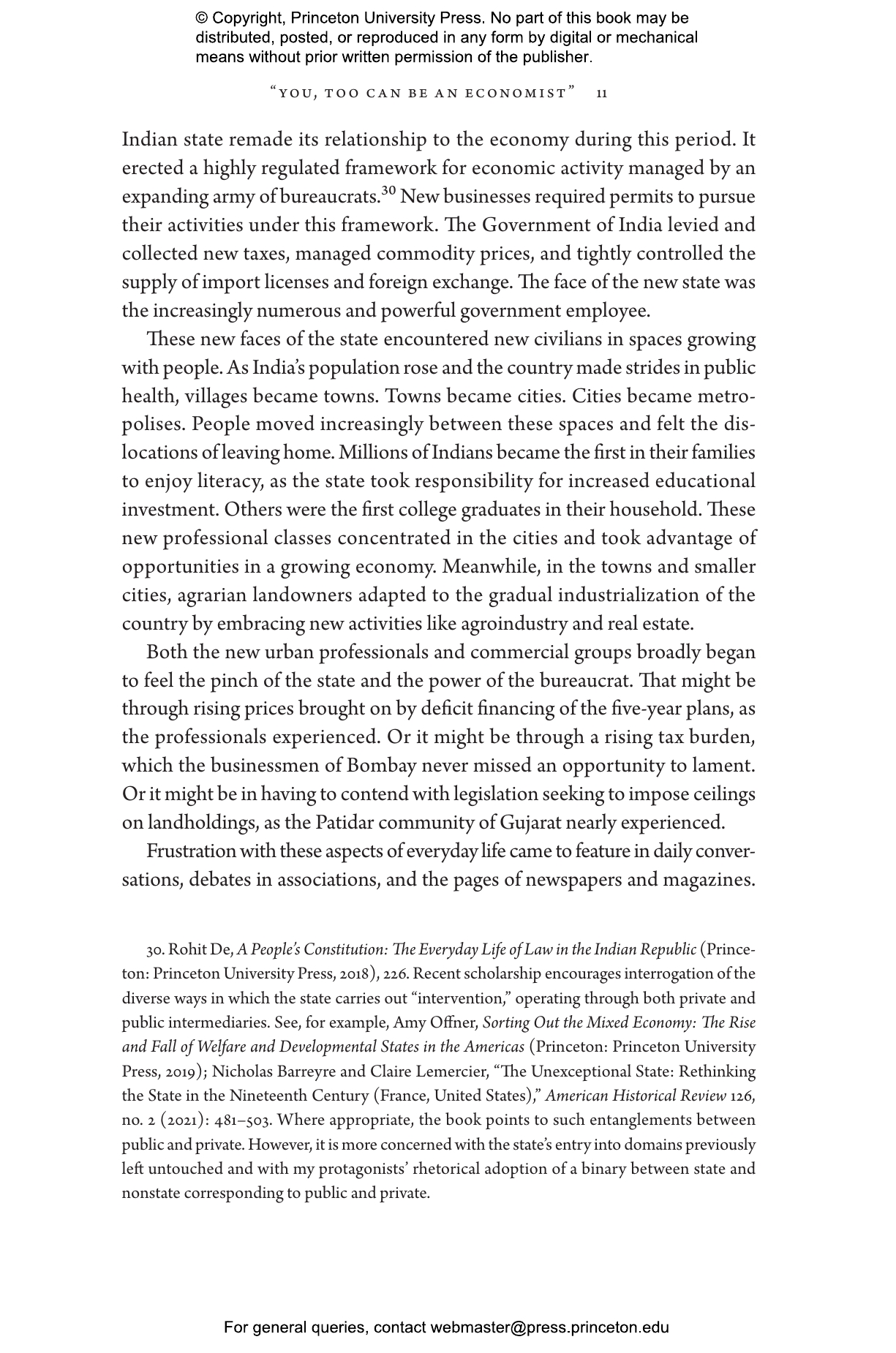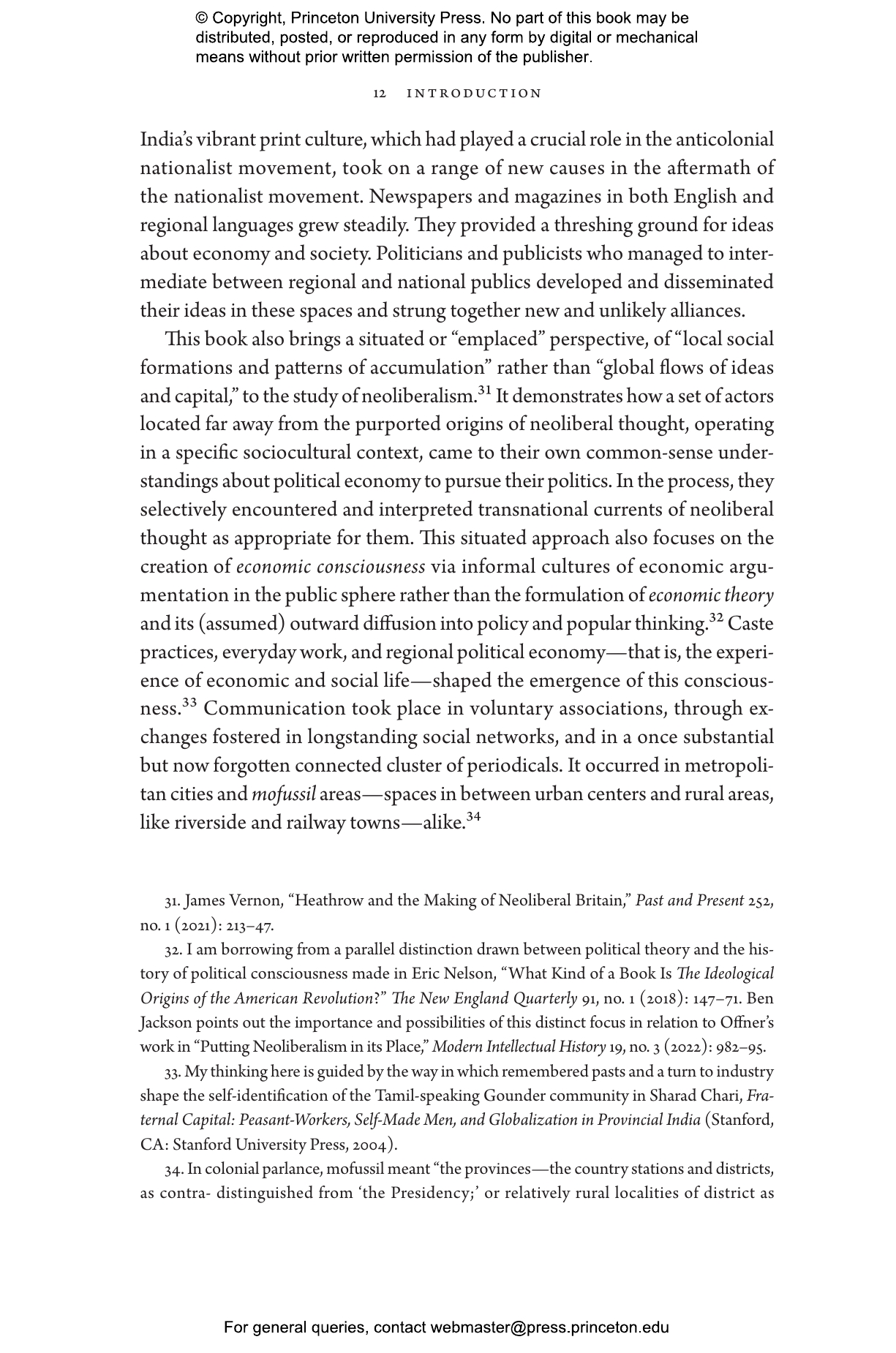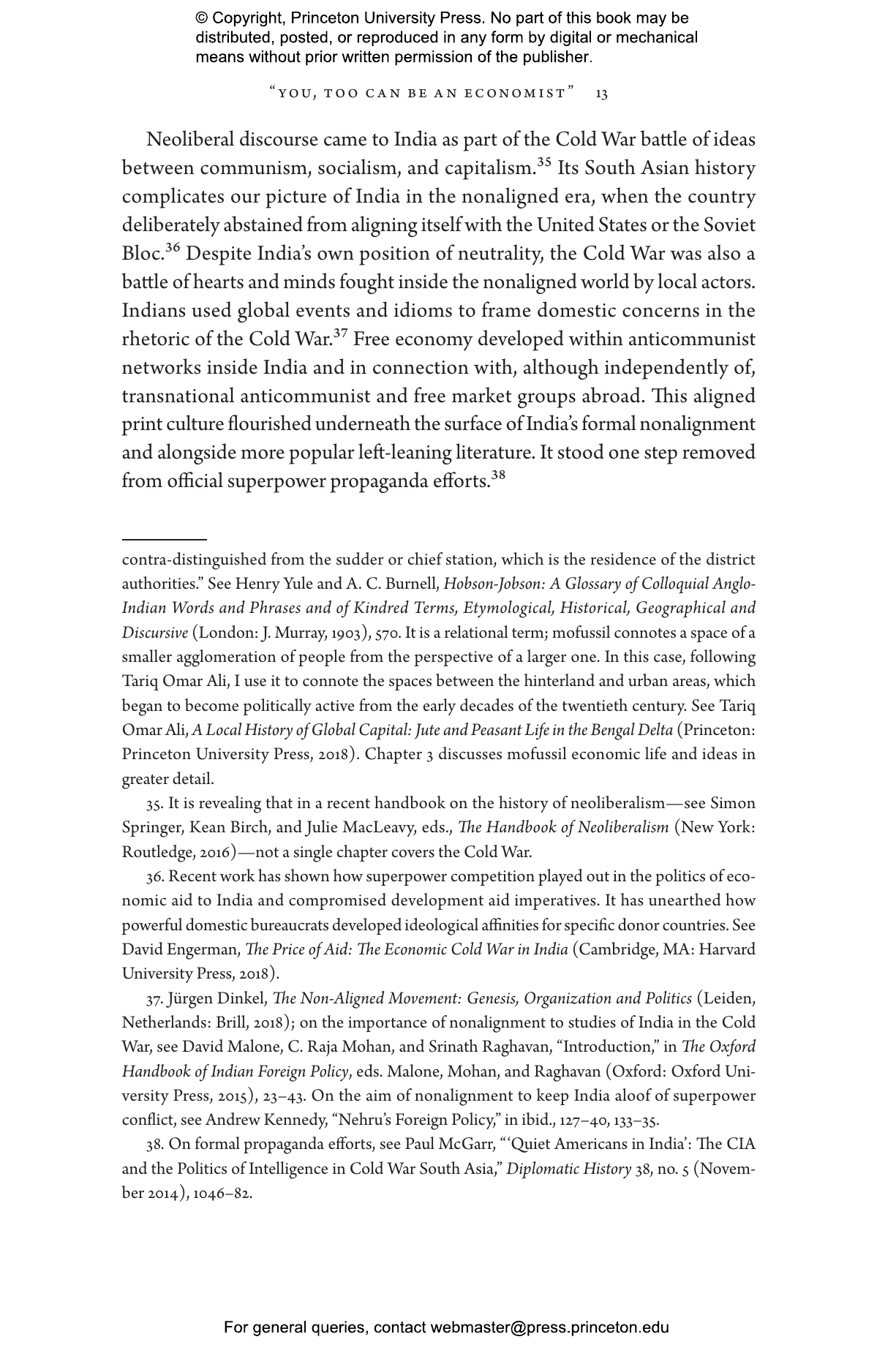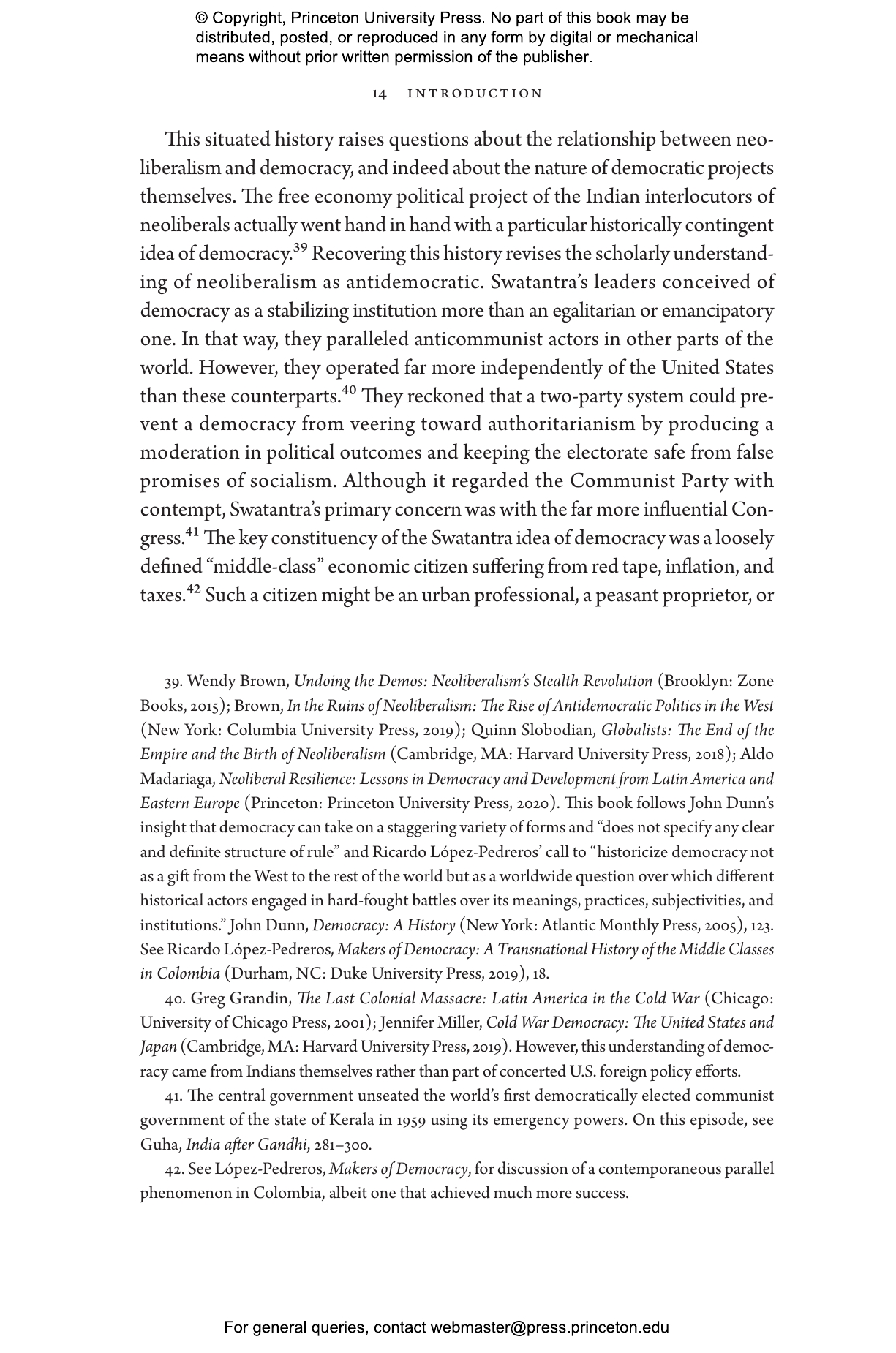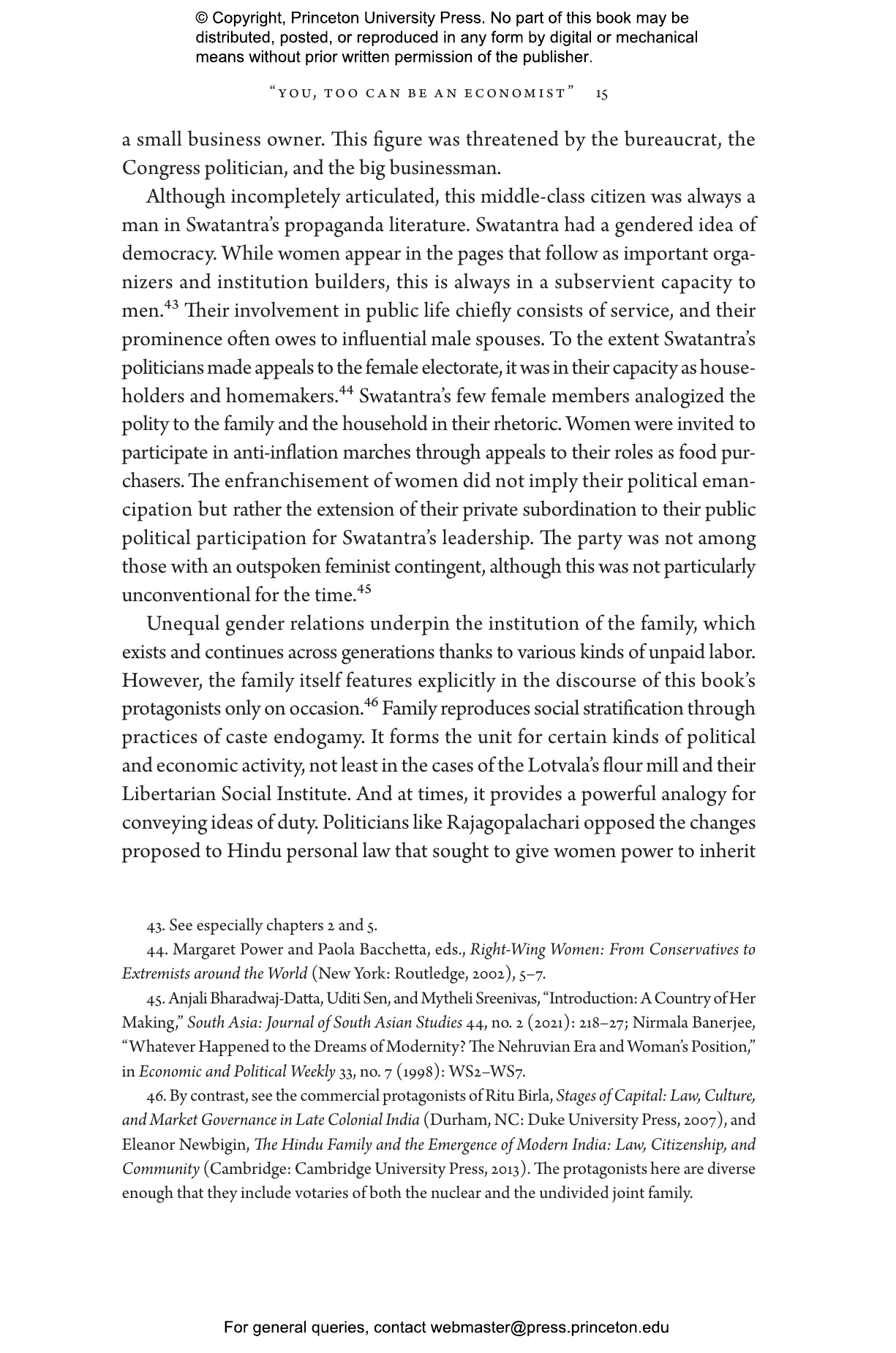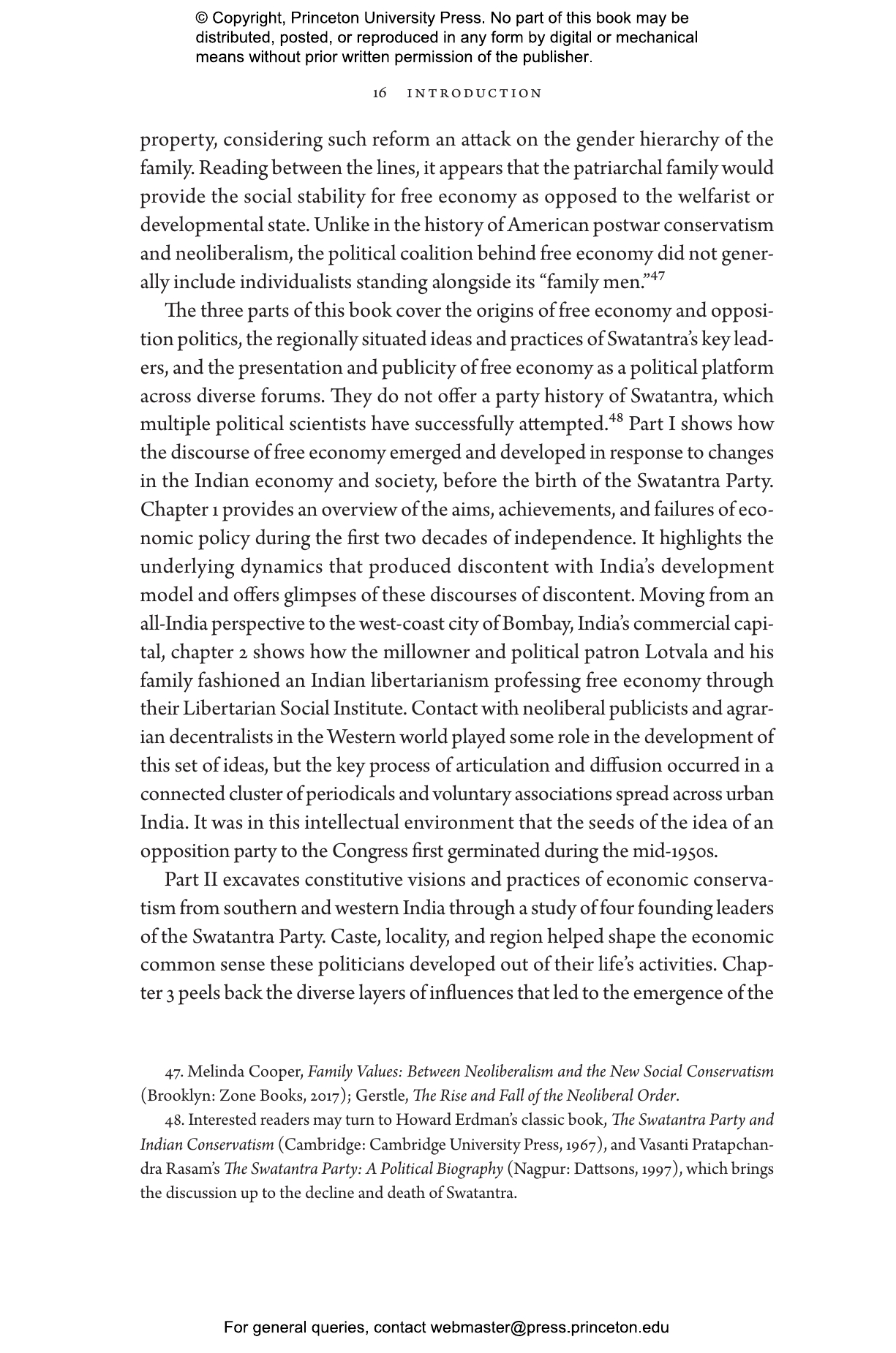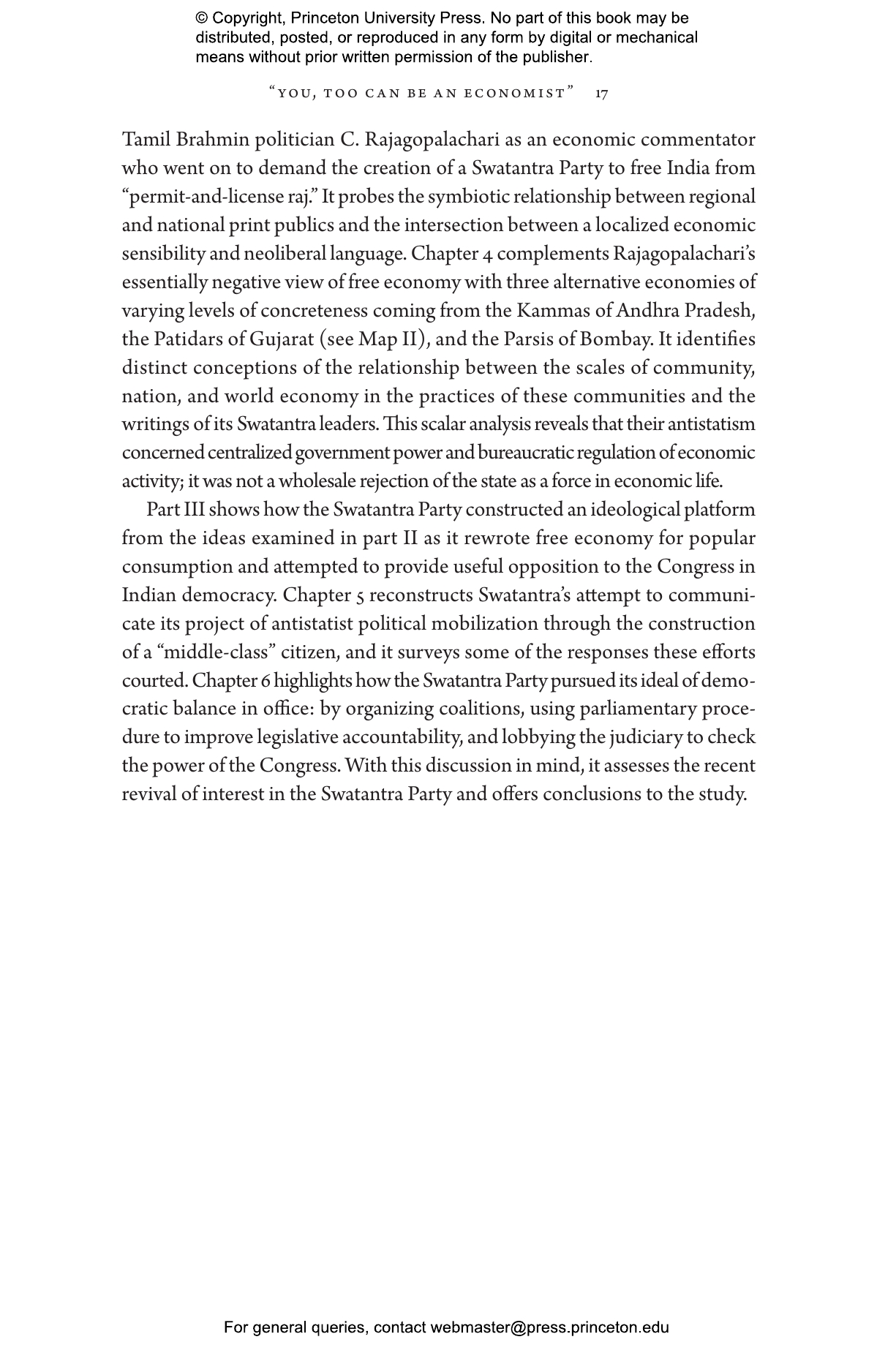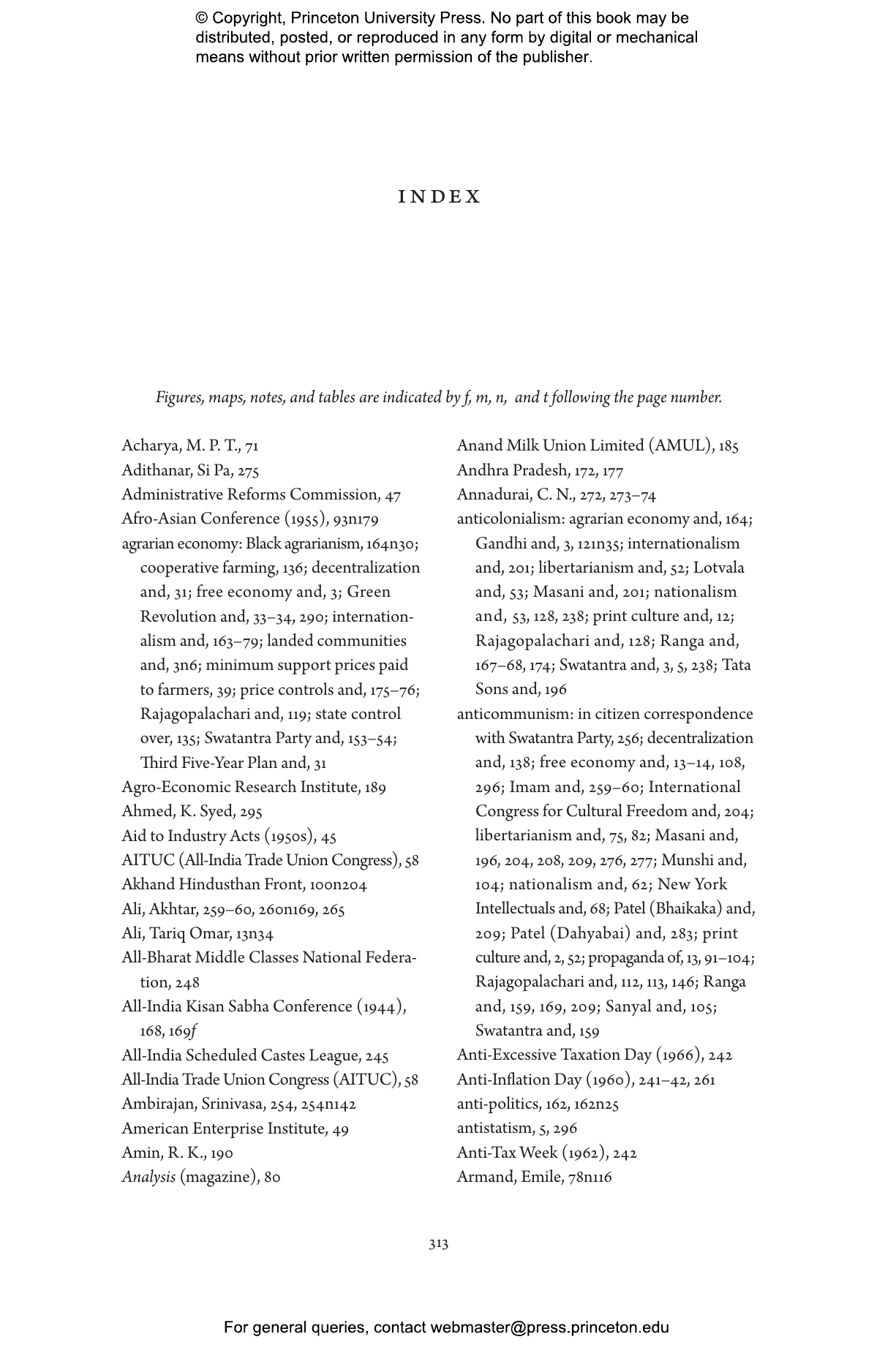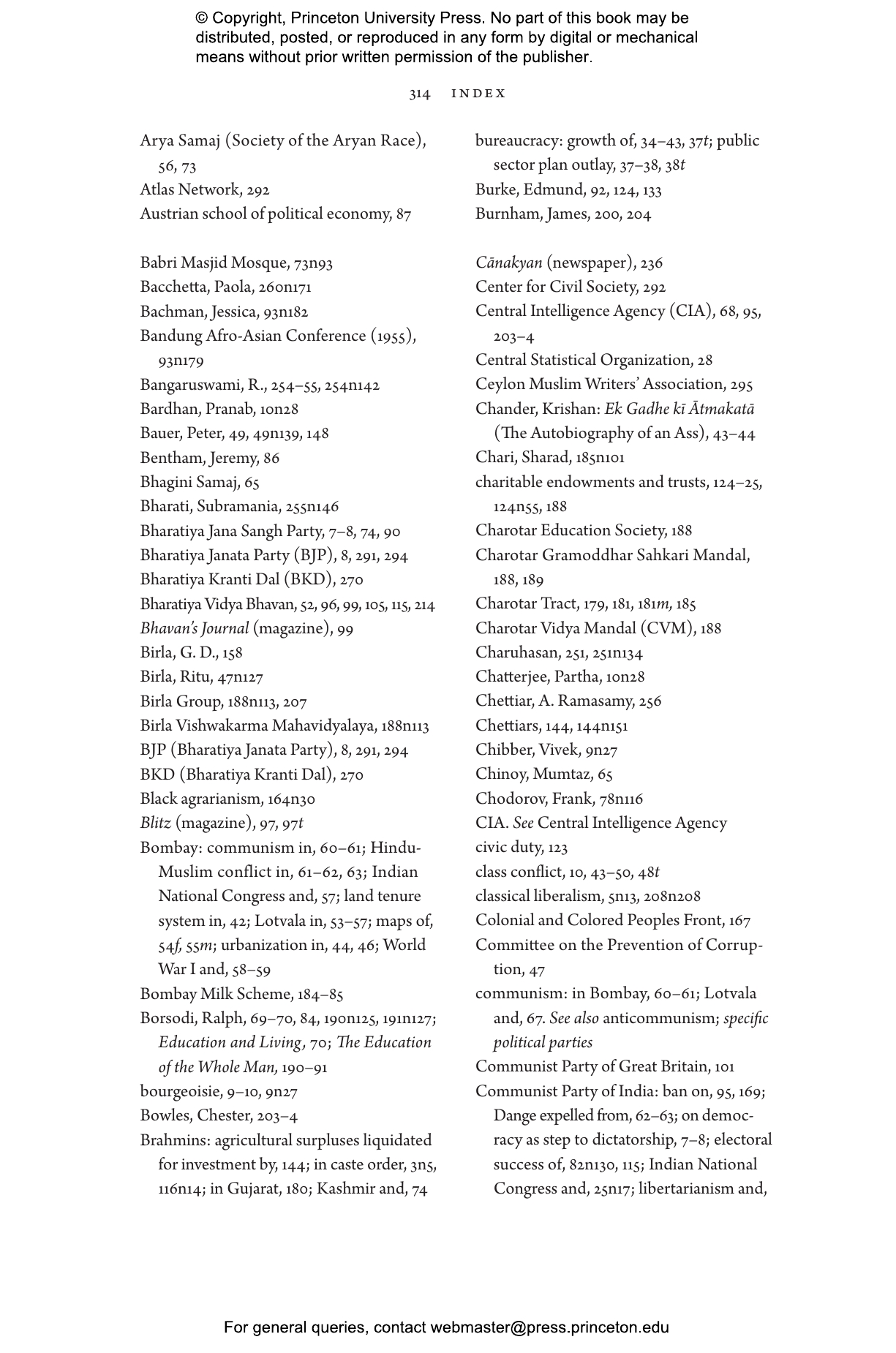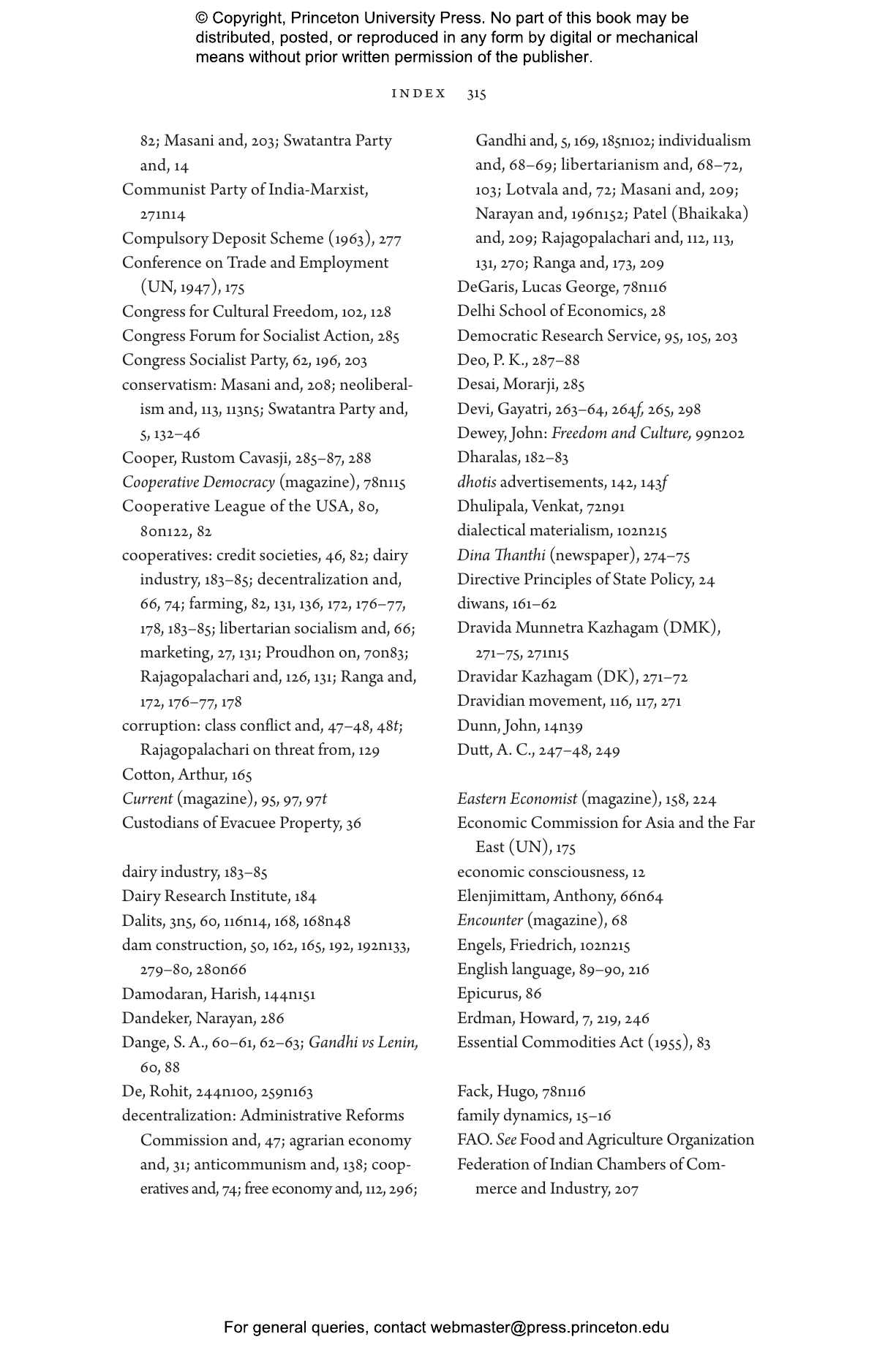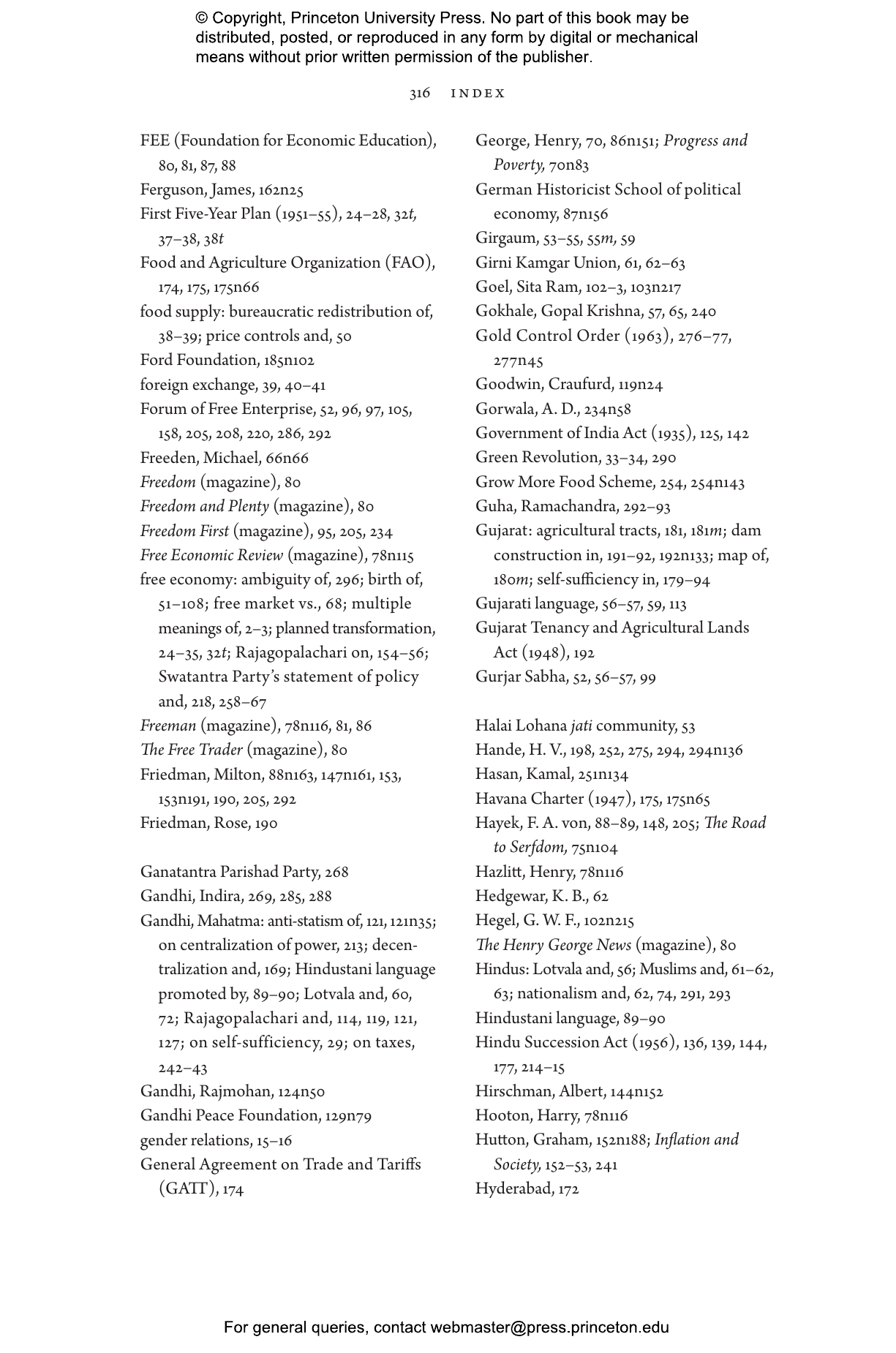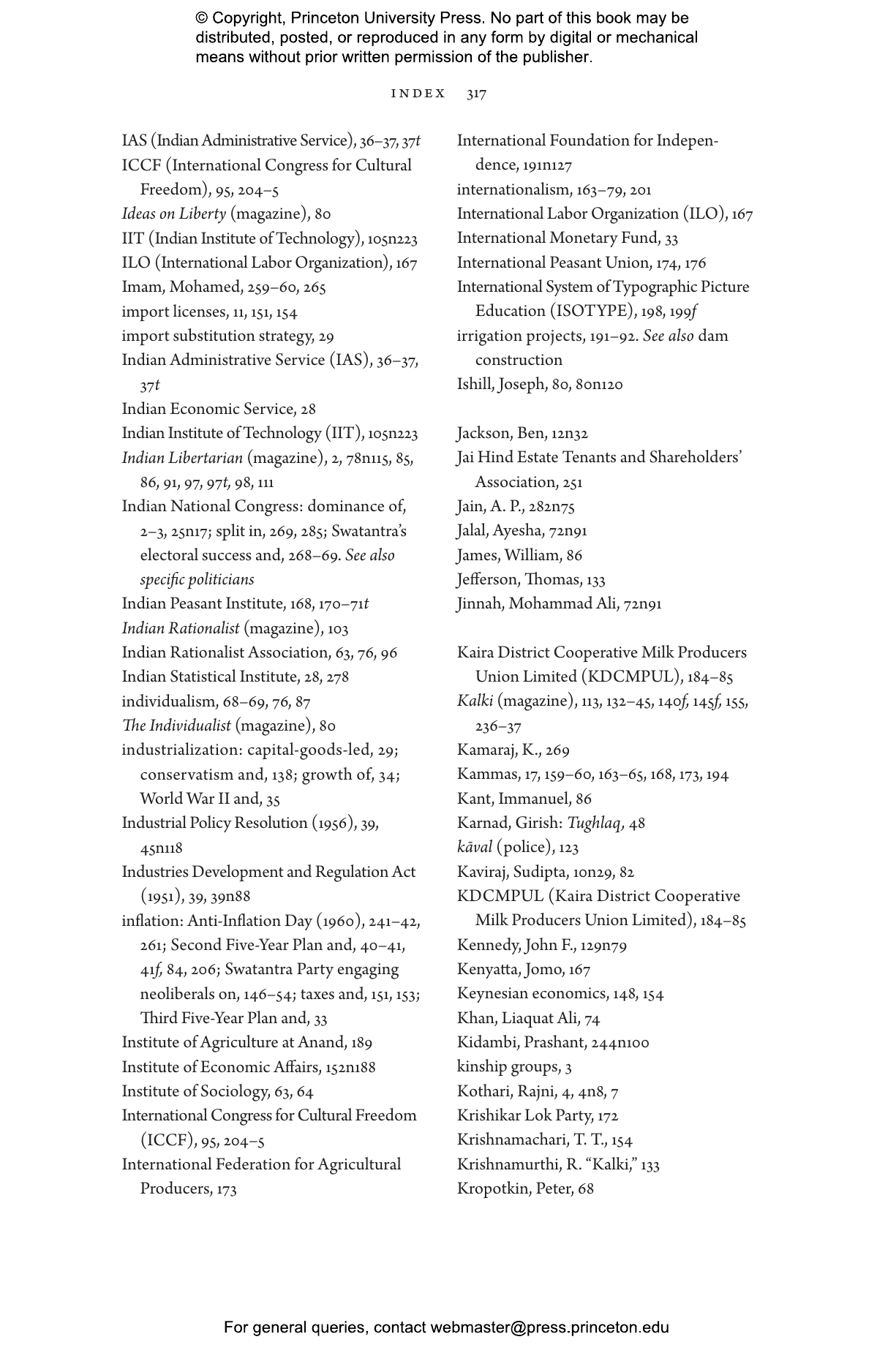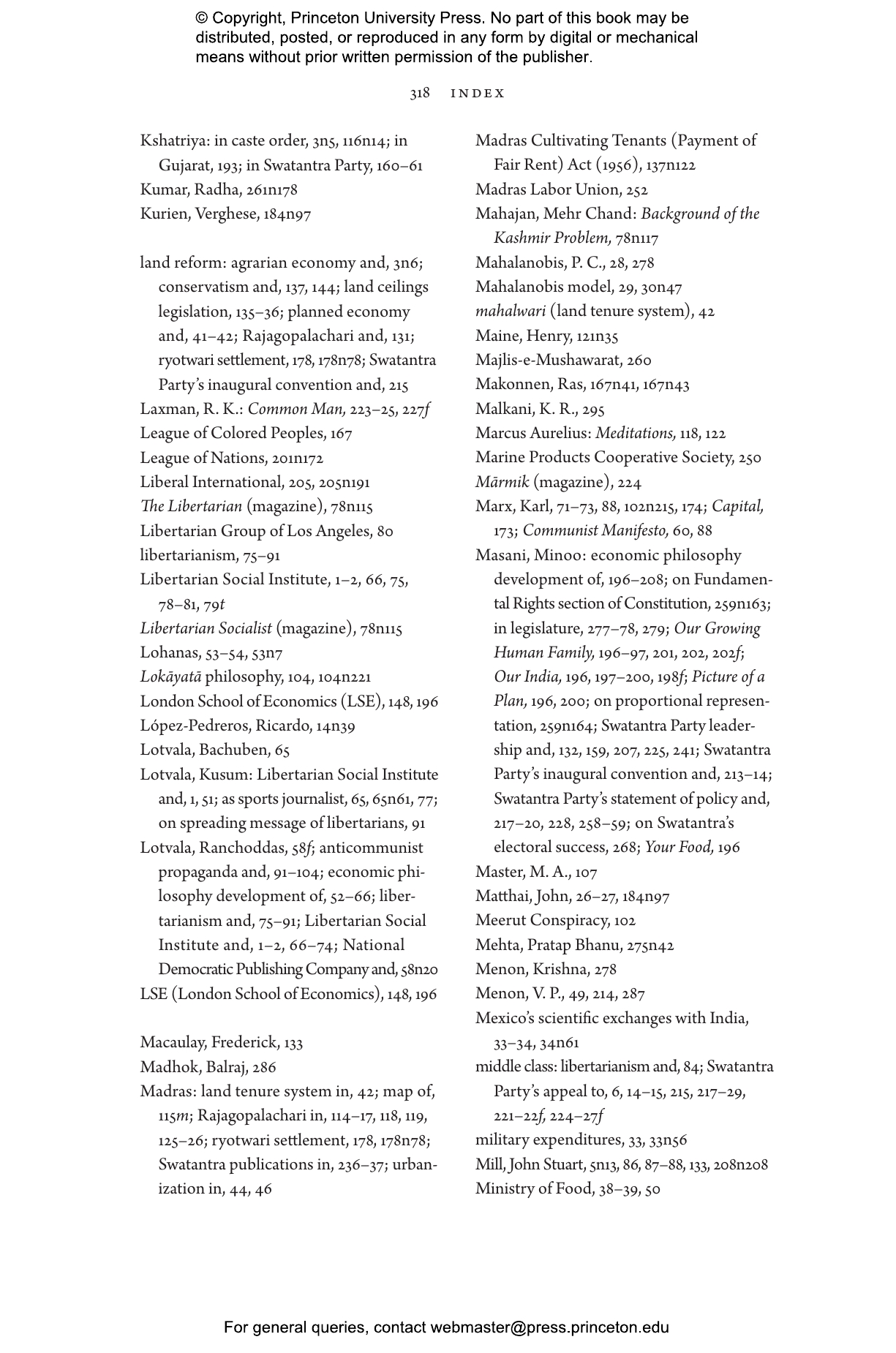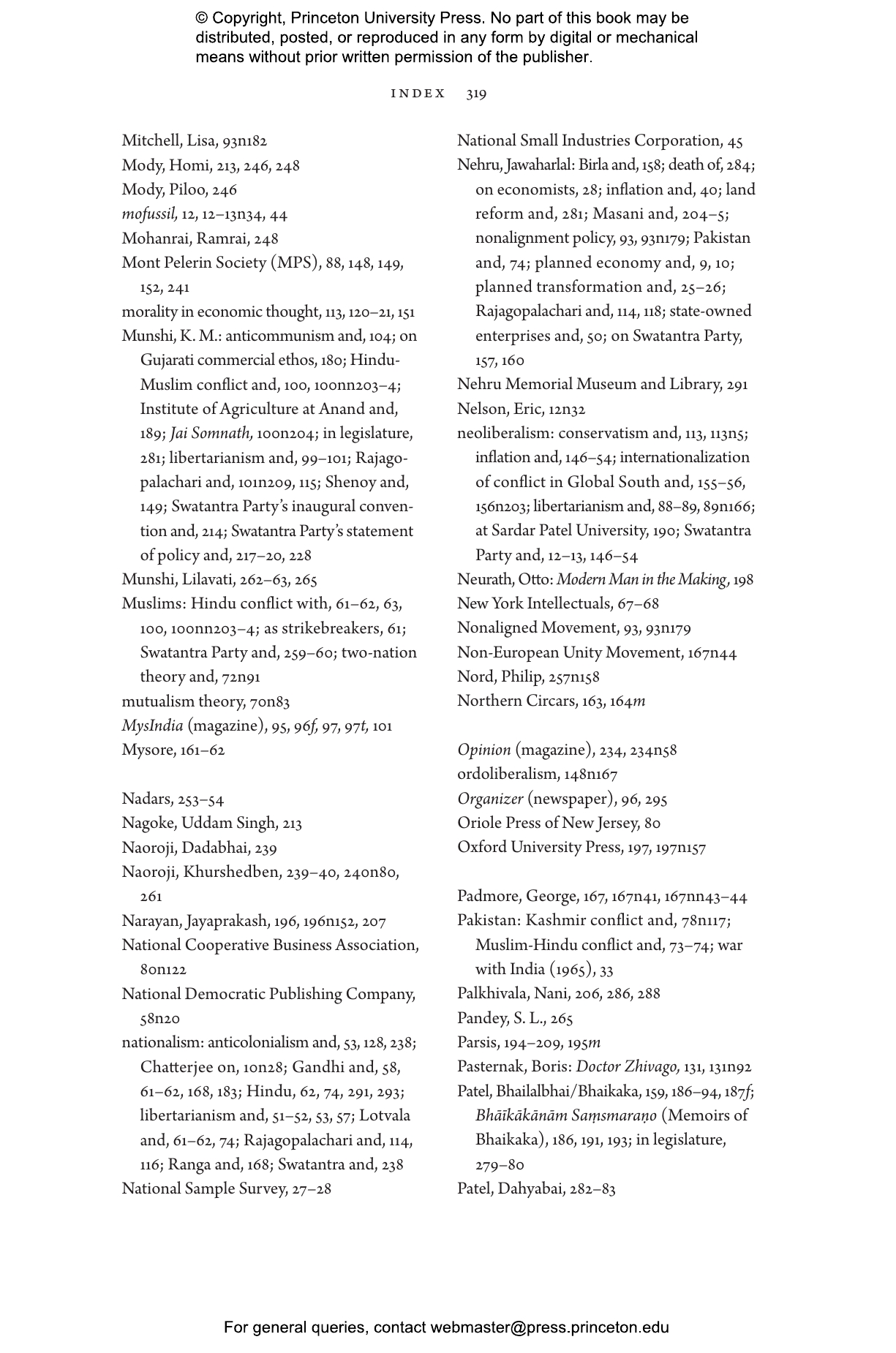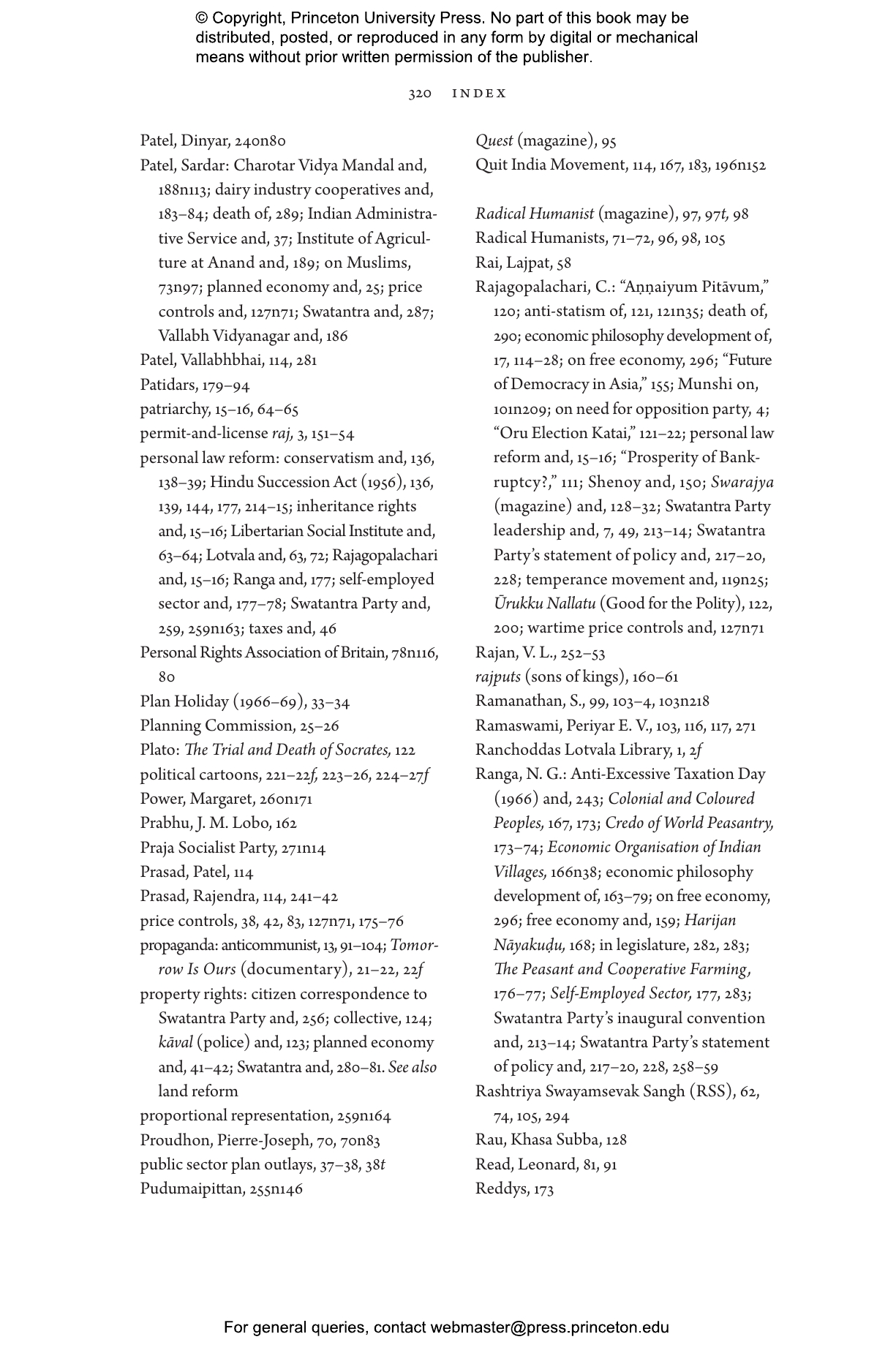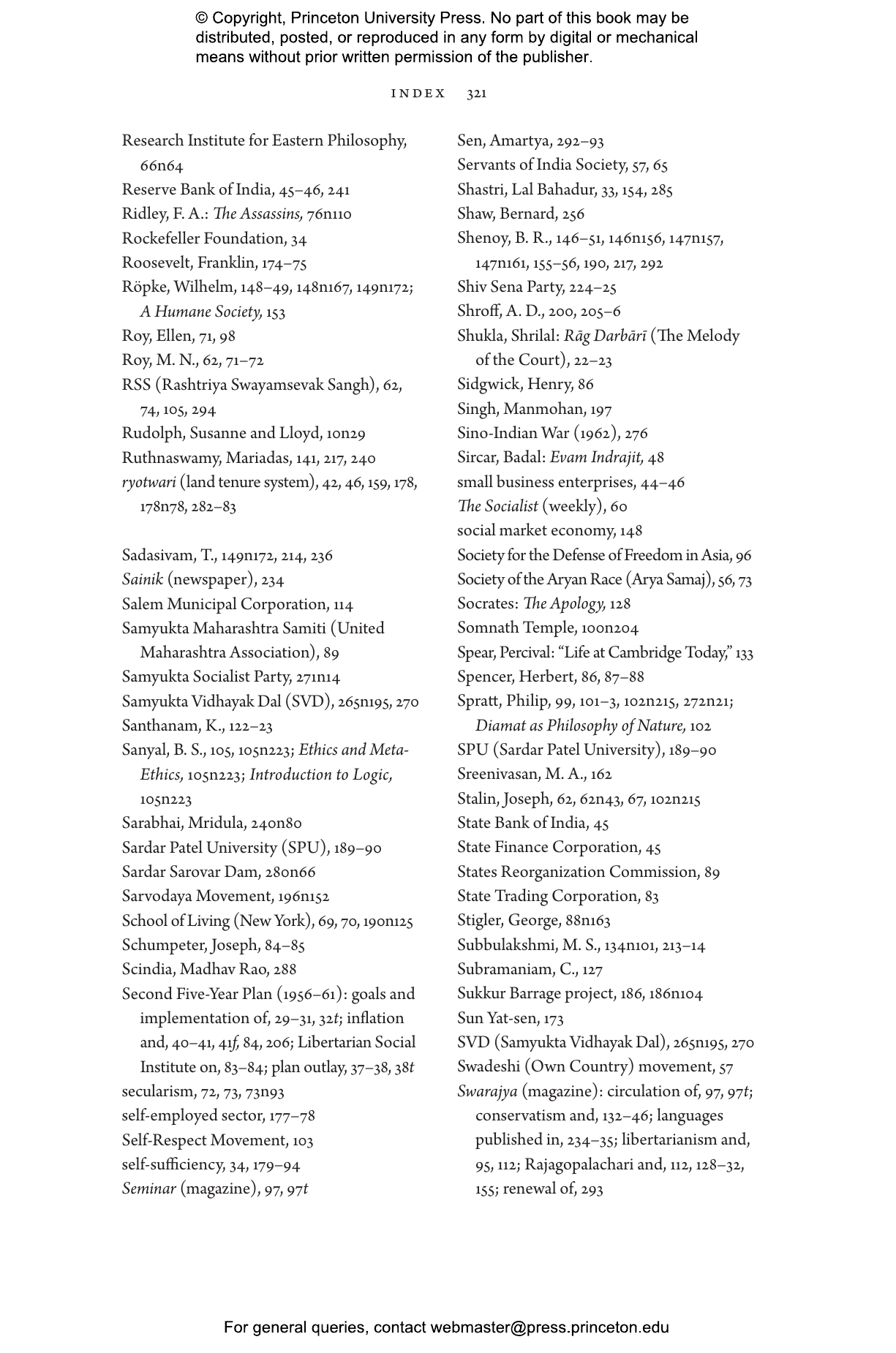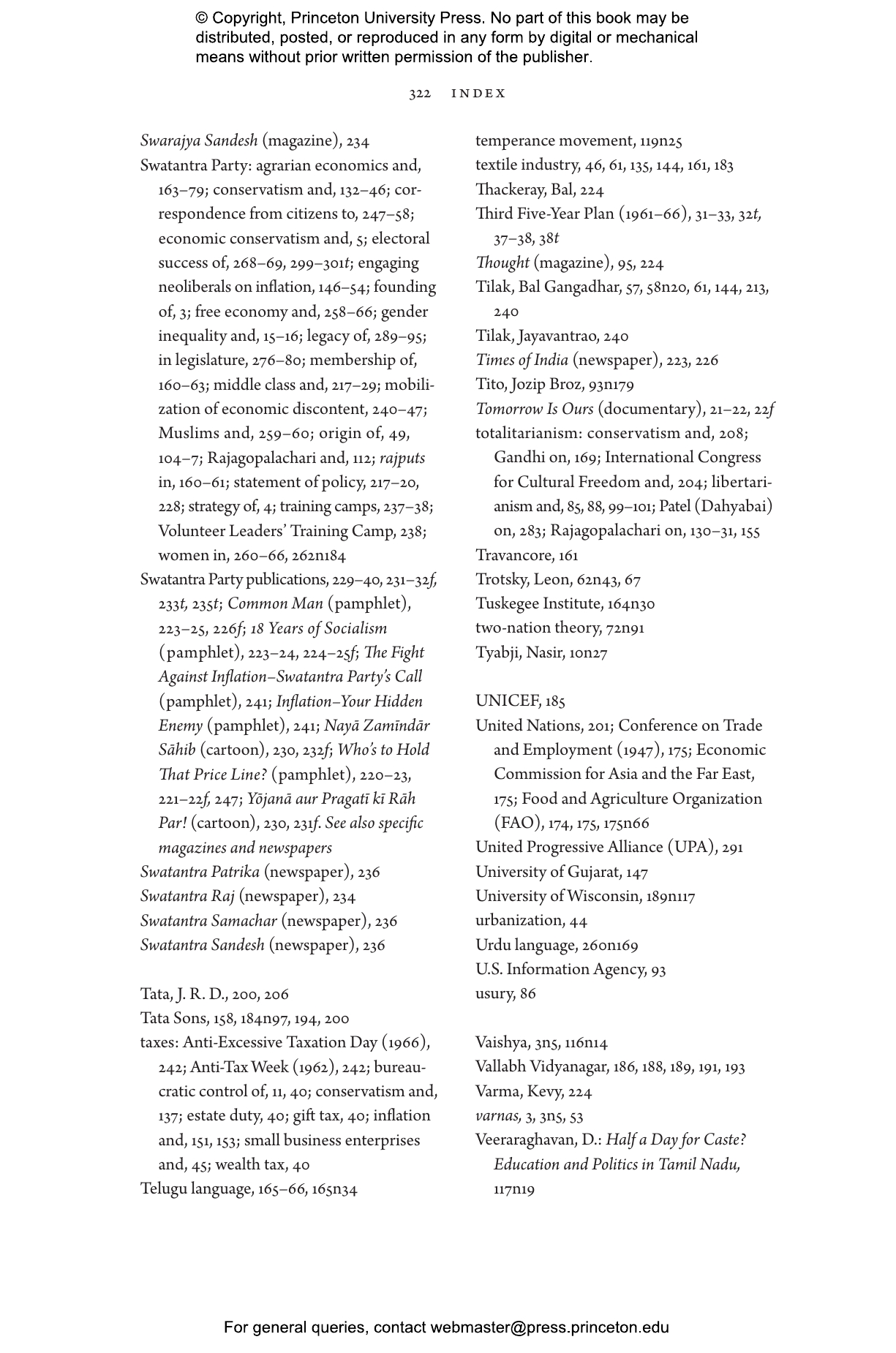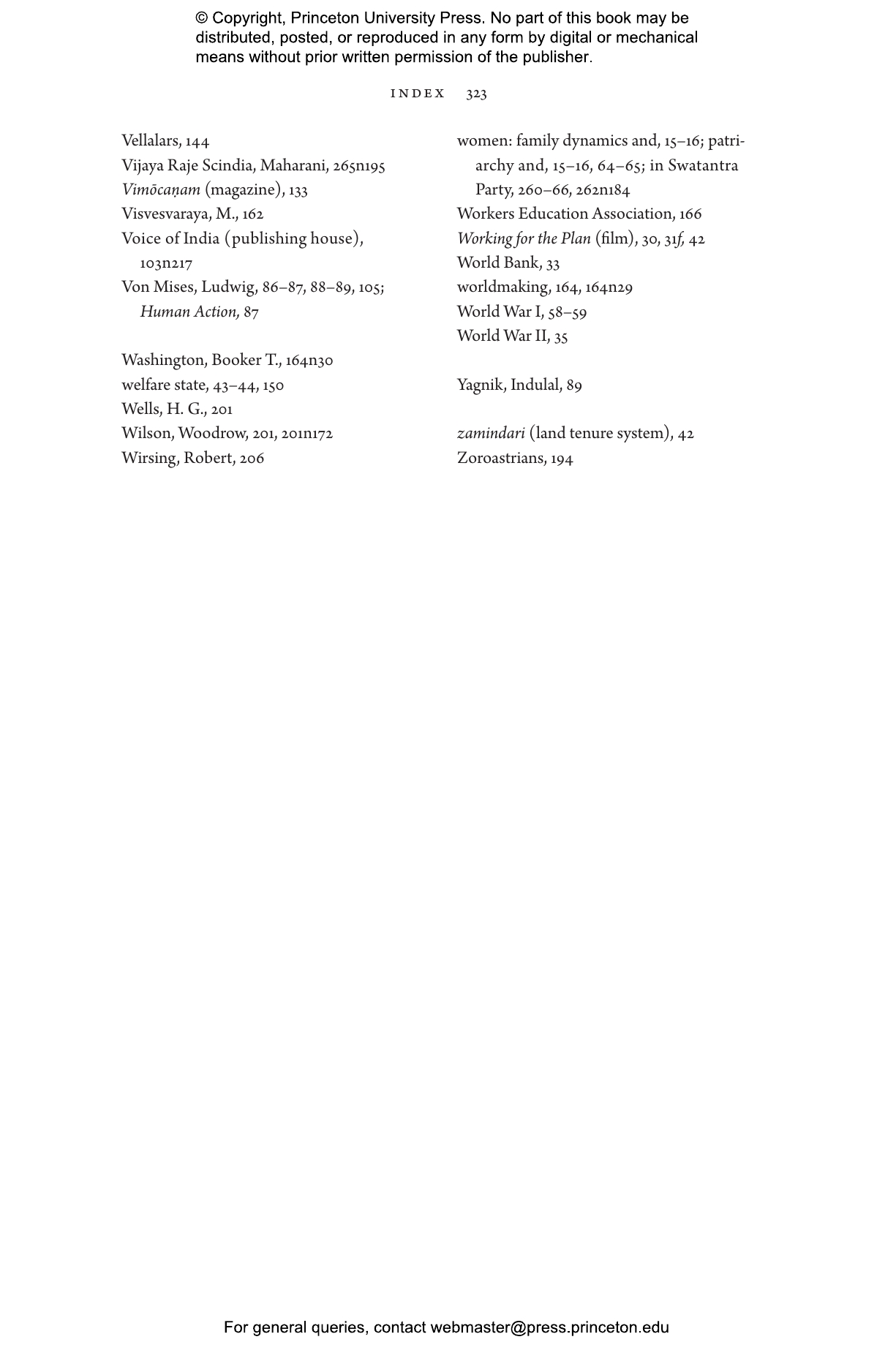Neoliberalism is routinely characterized as an antidemocratic, expert-driven project aimed at insulating markets from politics, devised in the North Atlantic and projected on the rest of the world. Revising this understanding, Toward a Free Economy shows how economic conservatism emerged and was disseminated in a postcolonial society consistent with the logic of democracy.
Twelve years after the British left India, a Swatantra (“Freedom”) Party came to life. It encouraged Indians to break with the Indian National Congress Party, which spearheaded the anticolonial nationalist movement and now dominated Indian democracy. Rejecting Congress’s heavy-industrial developmental state and the accompanying rhetoric of socialism, Swatantra promised “free economy” through its project of opposition politics.
As it circulated across various genres, “free economy” took on meanings that varied by region and language, caste and class, and won diverse advocates. These articulations, informed by but distinct from neoliberalism, came chiefly from communities in southern and western India as they embraced new forms of entrepreneurial activity. At their core, they connoted anticommunism, unfettered private economic activity, decentralized development, and the defense of private property.
Opposition politics encompassed ideas and practice. Swatantra’s leaders imagined a conservative alternative to a progressive dominant party in a two-party system. They communicated ideas and mobilized people around such issues as inflation, taxation, and property. And they made creative use of India’s institutions to bring checks and balances to the political system.
Democracy’s persistence in India is uncommon among postcolonial societies. By excavating a perspective of how Indians made and understood their own democracy and economy, Aditya Balasubramanian broadens our picture of neoliberalism, democracy, and the postcolonial world.
Awards and Recognition
- Shortlisted for the Joseph W. Elder Prize in Social Sciences, American Institute of Indian Studies
- Shortlisted for the W.K. Hancock Prize, Australian Historical Association
- Longlisted for the Kamaladevi Chattopadhyay Book Prize, New India Foundation
"Recommended and long overdue."—Tyler Cowen, Marginal Revolution
"One of the most comprehensive accounts of opposition politics as carried by key individuals and organisations, their initiatives, and its impact. . . . Within economics, economic history and history of economic thought are two separate disciplines. [Toward a Free Economy] traverses both and goes beyond in its effort to tell the story of India’s opposition in its early days. The book lays down a fertile ground for future researchers to further explore."—Kumar Anand, The Hindu
"Exhaustively researched."—Archis Mohan, Business Standard
"An instant classic."—Sanjeet Kashyap, Australian Outlook
"[A] meticulously researched documentation of a very special, albeit short, period of India’s political history. . . . [Toward a Free Economy] is a book of economic and social history which shows future possibilities, but the highly researched and eminently readable document will surely be the source of many more literary enterprises."—Sujit Bhar, The Asian Age
"Given the continued relevance of free-market policies in India, the importance of uncovering the underlying ideological constituency that promotes such policies becomes apparent. . . . [Balasubramanian’s] singular achievement lies in highlighting their regionally-grounded economic interests and the transnational linkages with the global civil society network of free traders and anti-communists."—India Business Journal
"[A]n intellectual tour-de-force. . . . [Toward a Free Economy] deftly navigates the nuances and complexities in the history of the Swatantra party and revises our understanding of the neoliberal project."—Raheel Bashir, Global Intellectual History
“Toward a Free Economy is a brilliant history of economic ideas in independent India. It provides a new view of the origins of conservatism in Indian politics, libertarian rather than authoritarian and committed to free markets rather than to Hindu nationalism, which should make a big difference.”—Amartya Sen, Harvard University
“Aditya Balasubramanian’s examination of arguments about a ‘free economy’ in India is an essential and invaluable addition to modern Indian intellectual history and brings rare illumination to a line of thinking often neglected. It combines this with a complex examination of the evolving politics of the Swatantra Party.”—Sudipta Kaviraj, Columbia University
“Toward a Free Economy is a fascinating, highly original, and deeply researched book. Rather than a narrow history of economics, it offers something more inventive and important: a history of economic consciousness and the communication of economic ideas across wider publics.”—Amy C. Offner, University of Pennsylvania
“This field-changing book transforms understandings of economic thought and politics in India, offers new methods to think through the history of economic thought, and challenges universalist accounts of the global rise of neoliberalism.”—Rohit De, Yale University
“This methodologically innovative book offers an important alternative to diffusionist histories of neoliberalism. Engaging with a rich trove of mid-twentieth century sources, Balasubramanian traces the ongoing impacts today of the short-lived Swatantra Party (1959-early 1970s) and the diverse range of embedded meanings that the party’s central concept of ‘free economy’ came to embody. Where others have seen historical failure in a political party that lasted less than a decade and a half, Balasubramanian documents its profound impact on India’s democracy, including its role in transforming a one-party system into a system in which opposition parties offer more dynamic checks and balances.”—Lisa Mitchell, author of Hailing the State: Indian Democracy between Elections
“Drawing on films, caricatures, and short stories alongside tracts and treatises, Aditya Balasubramanian brings to life the rich intellectual life of early postcolonial India and finds homegrown roots for the later market turn. An outstanding entry in the new histories of neoliberalism written with heart and insight.”—Quinn Slobodian, author of Globalists: The End of Empire and the Birth of Neoliberalism
